Business
Finding Growth and Success in Artisanal Firewood, through Mistakes, Testing, and Creating their Core Values [podcast]
Published
3 years agoon
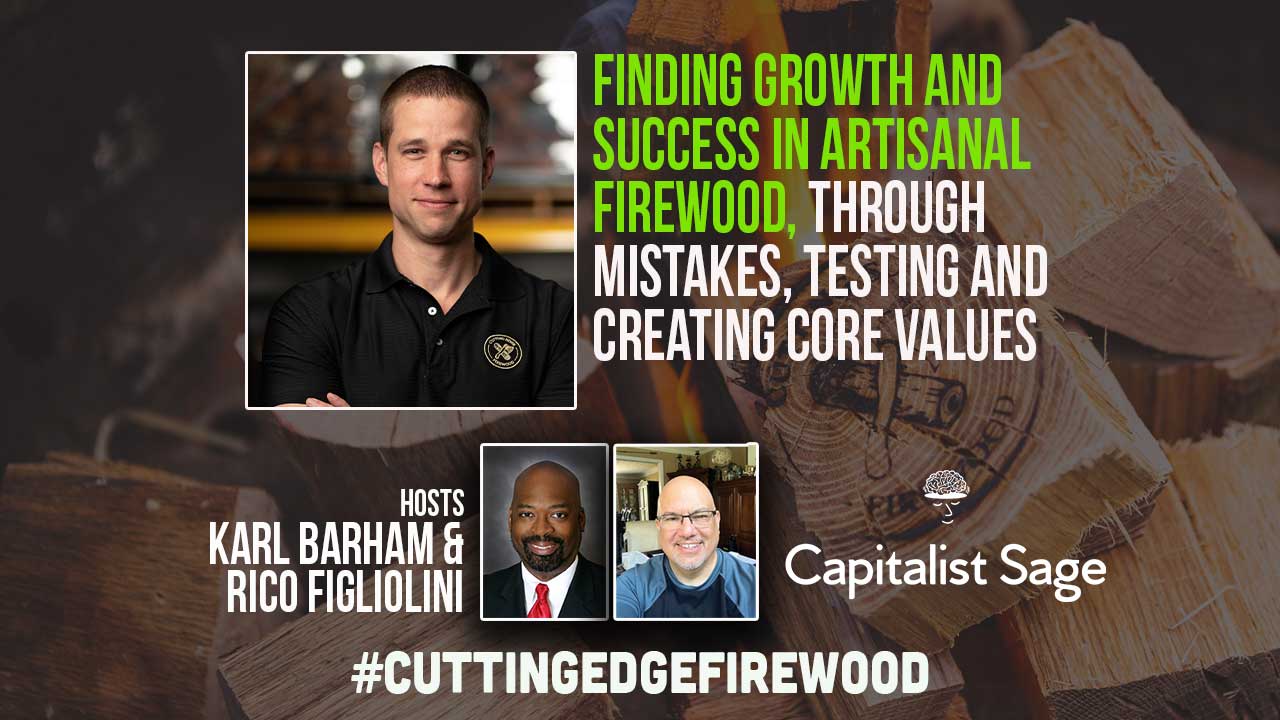
Firewood may not be the first thing you think of when talking about new and exciting business ventures. But Leroy Hite, founder, and CEO of Cutting Edge Firewood saw this industry as an interesting and challenging way to provide quality service and products to customers. Join Karl and Rico as they talk with Leroy about his experience growing and maintaining a high level of service quality in the business of artisanal firewood.
Resources:
Cutting Edge Firewood Website: https://www.cuttingedgefirewood.com

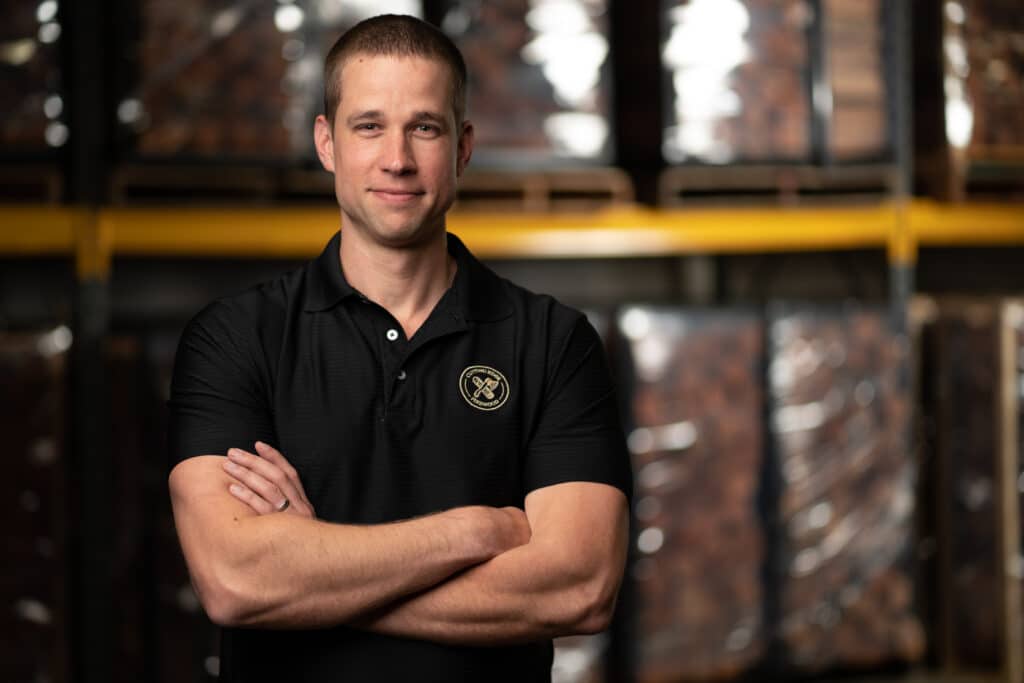
Timestamp:
[00:00:30] – Intro
[00:01:36] – About Leroy and Cutting Edge Firewood
[00:05:32] – Why Leroy Chose The Firewood Industry
[00:08:41] – Implementing Ideas and Working Through Challenges
[00:11:42] – How Success is Measured
[00:14:01] – Scaling the Business
[00:16:16] – Areas of Growth and New Strategies
[00:17:36] – Maintaining High Quality Service
[00:21:56] – Holiday Seasons in the Firewood Business
[00:23:32] – Using the Cooking Wood
[00:26:11] – Closing
“We have a set of core values that we really drive home. And we say the most important one is the customer experience. Every single person in the company strongly affects the customer experience. If a customer calls in and they have a bad experience, it’ll ruin the whole thing. If a delivery artisan goes out, who’s the face of the company and is rude, that messes up everything. And so that is one of our unifying core values is that everybody is driving the customer experience.”
Leroy Hite
Podcast transcript
[00:00:30] Karl: Welcome to the Capitalist Sage Podcast. We’re here to bring you advice and tips from seasoned pros and experts to help you improve your business. I’m Karl Barham with Transworld Business Advisors, and my cohost is Rico Figliolini with Mighty Rockets, Digital Marketing, and the publisher of the Peachtree Corners Magazine. Hey Rico, how are you doing today?
[00:00:48] Rico: Good, Karl. Good to be here. I can’t wait to talk to our latest guest.
[00:00:53] Karl: Absolutely. Yeah, it’s going to be exciting to talk with another brilliant young entrepreneur that’s here, local. But why don’t you tell us a little bit about the sponsors for today Rico?
[00:01:02] Rico: Sure. So Peachtree Corners Magazine is a sponsor of this episode, as well as the family of podcasts that we do. And you can find out more information about the latest issue at LivingInPeachtreeCorners.com.
[00:01:15] Karl: Excellent. Today our guest is Leroy Hite. He’s the founder and CEO of Cutting Edge Firewood and a local small business owner who provides premium firewood to their customers. Hey Leroy, how’re you doing today?
[00:01:31] Leroy: I am doing fantastic. Thank you very much, gentlemen, for having me on the podcast.
[00:01:36] Karl: Oh, absolutely. We’ve got so many great things happening here in Georgia and locally here in Metro Atlanta and Peachtree Corners. Not only do we have technology companies growing, we have large corporations moving into Peachtree Corners and the surrounding areas. We have entrepreneurs like yourself that are just innovating on industries and doing some really fun things. Why don’t you tell us a little bit about yourself and about your company? What do you guys do?
[00:02:04] Leroy: Yeah, absolutely. So first I’ll give kind of like the vision for the business and that’ll play in with the products. So back in 2013 started the business. Long story, but with the vision of both cooking wood and firewood. A fire is like a beautiful sunset. It’s universal. It’s primal. And it’s unifying. There’s literally no one on planet earth that doesn’t enjoy a wonderful fire. Whether you have a 95 year old man from Ethiopia or a three-year-old girl from Georgia, they will sit in front of a fire and enjoy it. After a stressful day, I can take a glass of just a shot of whiskey and sip it for a couple hours in front of a fire, and it’s amazing how much less stress I have afterwards than when I started. My wife can come out and it’s romantic. We can have our three daughters out for smores and they love it. And they create memories that they remember for the rest of their lives. Teenagers will put their phones down and talk to their parents. I can have a few of my buddies over and we talk about deep things that guys don’t usually talk about. And it can be at the center of a wedding party and I can cook amazing food over wood to the point that I don’t even really like going out to fancy restaurants because I can cook it better at home. And so you have that on one side and then on the other side, before we got in the industry, the industry standard was wood would set outside on the ground for 12 months, rot and literally have mushrooms growing out of it. And the business strategy, the branding, and the customer service matched the product quality. And so that’s what really drew me into it. That, and the fact that it’s an experience. And I love offering others wonderful experiences. That’s what drives me. And so what we offer is the firewood, of course. We have boxes that we, in Metro Atlanta, and Metro Nashville, Dallas, and Seattle currently. We offer same day delivery for the boxes of firewood. The boxes come with enough for two to four fantastic fireside experiences. And they come with kindling, fire starters, and a box of matches. We also ship those around the country. And then we have our patented airbrush metal racks that we offer in our delivery artisan areas. And those areas are Metro Atlanta, Chattanooga, Greenville, South Carolina, Charlotte, and Nashville. With those, our delivery artisans bring the rack to your home. And all of our firewood goes through a special process that makes it bug free, burn hotter, longer, start easier. And so we will put that rack essentially anywhere that you want it. And then when you reorder, we take the empty rack and replace it with the full one. And then we do cooking wood that we ship around the country for all different ways of cooking over wood. Whether it’s a pizza oven or a big green egg, you can use our chunks or splits in a bunch of other different smokers and grills. So that’s the quick, yes sir.
[00:05:11] Rico: I just got a delivery of that by the way. And I’ve got to say, I haven’t burned the wood yet, but just the smell of it. Just the scent of that wood. I forget which two that I got, but they’re two different flavors, if you will. Just unbelievable to be able to just be in the room, just smelling that wood before it even gets burned.
[00:05:30] Leroy: I appreciate it.
[00:05:32] Karl: Yeah. So I’m curious, you went into an industry and I love that you picked firewood because if you were to think of a commodity that anything could be, nobody gives a lot of thought if they walk into whether it’s a Home Depot or somewhere else, to buy firewood what brand it is, who it is, and so on. What made you pick this industry and firewood in particular to focus on and what are some of the key elements of your strategy to differentiate it?
[00:06:02] Leroy: It’s a great question. So, I love the experience aspect of it, and I love that it’s something that nobody else has really treated it like a business. Much less a modern business with a lot of opportunity. And that’s what drew me into it is the experience aspect. And that, in business, if you see everyone going in the same direction, a lot of times the opportunity is going the opposite direction. So that really got me initially interested, I knew that there was something here. And what’s really differentiated us is that, the devil’s in the details is a great saying. And that there’s a lot of truth in it. From the beginning to the end, we pay attention to every detail. I wanted to shock people that a firewood company would have branding as good as ours. When they order on our website, we want that to go smoothly and be a great experience. When you call in and talk to somebody, you talk to somebody that’s very professional, very knowledgeable. All of our employees are wonderful and go through a lot of training and love taking care of customers. And then when the package arrives, whether it’s a delivery artisan delivering it, you’re blown away with how we do it. And then you actually use the product and that sets us apart because you don’t have wood that’s just sizzling or that’s bug infested. Or if you’re cooking over it, you’re not cooking over something that has mold and mildew. Every single product that we put out, kind of an internal saying is we have a lot of famous people. For example, Terry Bradshaw is a really good customer, to name one that’s publicly endorsed us. And so we treat every single customer like they’re Terry Bradshaw. So when Terry Bradshaw orders, we don’t pick out specially wood just for Terry Bradshaw, I don’t go and make sure that everything’s perfect. He’s treated like every other customer, which is like Terry Bradshaw, if that makes sense. And then we actually write a handwritten note to every customer thanking them for their purchase. Which of course is something that sets us apart from almost anybody in any industry. And that’s another thing is really when people order from us initially their standards are really low, but our goal is to just blow their standards out of the water and set ourselves a high bar to follow through the second time that they order. So we don’t want to rest on our laurels and be happy with the low standards. So really we want to be innovative and offer a phenomenal experience and have phenomenal customer service, not just for firewood but for any industry.
[00:08:41] Karl: Oh, I love it. Some of the things you’re doing seems pretty obvious that people should do in their business. And people could, may have a different perception of what great looks like or what good looks like in there. What are some of the things that you were trying to implement to get to where you are today or things you didn’t expect to happen? What were more challenging to do then than you might’ve first thought?
[00:09:04] Leroy: Oh, everything. So that’s the other side of traveling the path less traveled. Making your own trail. Whatever you want to, however you want to put it is, everything that we do because we’re innovative we kind of have to learn things the hard way. So we’ll try something out and I’ll think it’s ingenious and we’ll fall flat on our face. And there’s been times where we’ve lost hundreds of thousands of dollars on trying something out because I thought it was going great and it wasn’t. So we’ve, yeah, we’ve gone into like trying to sell the different B2B markets. And I thought they were really great, innovative ideas and we pushed it really hard. And it just doesn’t work at all. And so we’ve really found that direct to consumer, B to C is our sweet spot.
[00:09:54] Rico: Yeah, what were you specifically trying to do? Was it white labeling B2B? What specifically was the point?
[00:10:01] Leroy: Yeah, we actually did try to white label. And this is back in, I think 2015. Probably don’t have time for this podcast, but it’s pretty interesting long story with lots of risks, but one time back in 2015, we actually tried to sell some bundled firewood to stores and bought some equipment and it ended up actually being the warmest winter record. And so they couldn’t get rid of their one. But the more, the more recent example that’s from like 2019 is we did a big push to sell to restaurants. And in restaurants, the pricing is very competitive because restaurants’ margins, they don’t have a whole lot of margin. And so the idea was we would offer them the racks at competitive pricing, but in exchange for us offering them a higher quality wood for competitive pricing, they would put the racks in their dining room. And so we wanted high-end restaurants to have the customers to see our racks and then help improve brand awareness. And basically as prices started going up, it started eating into our profits. And so it started costing us a lot of money and a lot of the restaurants wanted us to bend over backwards for them when we were losing money. And so we had to pull out of that, pull out of that, but it’s interesting. Cause at the same time we started putting out yard signs that year. And that’s when everybody started to know who we were because of the yard signs.
[00:11:34] Rico: You, weren’t afraid to innovate. You weren’t afraid to try things and pull back from it.
[00:11:40] Leroy: Yes, sir. Absolutely.
[00:11:42] Karl: There’s an interesting thing that you said in that story, as you were sharing that example that I think is a key point. You try stuff. And if you’re going to blaze a new path and innovate, you’ve got to try things and take risks. You were somehow able to know that it wasn’t getting the desired outcome and profitability. Tell me a little bit about how did you know, how do you measure success? You mentioned that you saw the profitability, what does it look like when you’re managing the bottom line of your business? So you know when to end a certain path so you can move in a different.
[00:12:20] Leroy: Measuring is super important. It’s funny because I most definitely learn more about that every year. I’m more of a, if you’ve ever read the book Rocket Fuel. It talks about integrators and visionaries. Definitely more of the visionary style. So I’m definitely less risk adverse and than some others. So I like pushing the envelope even when it comes back to bite me sometimes. But it’s extremely important to measure everything that’s important. So how we knew what was, and wasn’t working that year, it was just simply every time a customer would call in, we would ask them, how did they hear about us? And we would keep up with that in our CRM. And so generally, we just knew a percentage of where all of our new customers came from. We knew that we weren’t getting anywhere near as many new customers from the restaurants as we wanted. Whereas the yard signs were working phenomenally. Same thing. We tried putting up some billboards that same year and we weren’t getting the return. Now after the growth in 2020 and this year we’re going, our systems are becoming a lot more complex. And I brought on a really high level team that’s going to help us grow the business into the next area. And they are really good about measuring everything and sending me the information.
[00:13:40] Rico: I also noticed that you guys expanded just recently. I think it was in September. You went from 10,000 to 40,000 square feet in Peachtree Corners?
[00:13:49] Leroy: That’s correct. Yep, that’s correct. So our warehouse is looking pretty impressive. It’s a lot of fun actually, just to walk around there and I’m like, wow, this is crazy.
[00:14:01] Karl: Yeah. If you think about it though, you’re hitting on another key insight in learning along this journey is there’s a point of when, in order to scale, you’ve got to surround yourself and build a team. Where different people have different areas of expertise and specialty and let them do that very well. You are like many of the classic entrepreneurs who have vision and willing to take risks. And then there’s those often, they’ll find people to support them that are good in the details of the execution and the numbers. And that balance, it is sometime found in one person sometimes it’s found in many. The key thing for your business is that you figured out how to bring that together to help you continue to be successful and scale the business.
[00:14:45] Leroy: Yeah, it’s crazy. Cause looking back on it just, there’s so much trial and error and there’s many different ways that you can look at it as far as setting yourself apart. One of those though is just, as much as possible, the painful side is learning how to make that pain less painful each time you try out something new. So like an example in marketing is we tried out a company where we did an influencer campaign and we spent $40,000 on it in the spring. And I thought it was a really good idea. And we just got a fraction back in revenue that we spent on it. And so the answer is like, okay, we’re not doing that again. And so we learned our lesson and it hurt, but we learned our lesson. We now will go on to budget and we’ll go on to trying out the next thing within our budget. And hopefully the next thing works.
[00:15:37] Rico: Was it because the influencer campaign didn’t extend far enough that you didn’t get enough influences on it? Sometimes these things happen too.
[00:15:45] Leroy: I think it was the particular audience. So I guess to get more detailed, it was influencers that cooked over one, which you would think would be exactly who we need to get. But we have a very particular demographic within the cooking wood industry or world that we’re targeting. And so I think the people that we, the cooks, the chefs that we got, I don’t think they targeted enough of our particular audience.
[00:16:16] Karl: Got it. As you think into the future and growth, what white space areas out there or growth strategies do you think you’d like to explore next that you haven’t started to?
[00:16:30] Leroy: As the chief visionary, I spent a lot of time on that. Maybe too much time. So our delivery artisan service is, it’s very slow moving. It’s very capital intensive. Because we hire very high level employees to take care of our customers and we have to buy trucks and equipment and the metal racks up front. And of course the firewood. But it’s very, there’s not anything else out there in any industry that’s quite like it. So I think that’s something that’s going to continue to grow at a healthy level. But I do see our boxes of firewood, same day rapidly growing around the country and other cities along with us shipping our cooking wood. Whether it’s for the pizza ovens, or for Big Green Egg, or Kamado Joe ceramic grills, or other kinds of smokers. I think that kind of stuff is going to grow really quickly. And we’ll use that to continue to grow the delivery artisan service. And the great thing is they all work together really well. Because then we can move the delivery artisan service into the markets as quickly as we want to.
[00:17:36] Karl: I love that approach. I know I work with a lot of business folks that are looking to grow. And one of the options that they look is a franchise approach to doing it. Very successful. It’s exploded all over the world. Franchise growth and so on has its pros and has its cons. Of course, as an approach. One of the areas is around this service experience. When you grow organically yourself, you have better control over the service expectations, how you hire, how you recruit people in that. If you go through franchise, you hope that those owners, local owners will follow it, put things in place, the tools in place, but that can vary from group to group. What are some of the things that you’ve been successful at implementing, to drive this service-based culture that you’ve been able to create and drive as part of your brand?
[00:18:28] Leroy: Yeah, first and foremost is hiring the right people. And we have a set of core values that we really drive home. And it’s not just something we write up on the wall and point to once a year or twice a year. It’s something that essentially every meeting we drive home. It’s how we grade our people is against these core values. And we say the most important one is the customer experiences. Every single person in the company strongly affects the customer experience. If a customer calls in and they have a bad experience, it’ll ruin the whole thing. If a delivery artisan goes out, who’s the face of the company and is rude, that messes up everything. If somebody that is processing the firewood and going through it and sifting through it, making sure and quality control and they let wood that’s not up to par. That’ll definitely ruin the entire experience. And so everybody plays a part. And so that is one of our unifying core values is that everybody is driving the customer experience. And then the next is putting the procedures and processes in place. Which honestly is definitely one of my weaknesses, but why it’s very important to surround yourself with others that have strengths, where you have weaknesses. To put all these processes in place that protect against mistakes getting made.
[00:19:49] Karl: It’s very interesting around that service thing. It’s something that we strive to reinforce in our team and our business. We’re a service-based business as well. And you articulated, I think exactly, our three pillars. One is in the people. And we think of it in training and attitude. You could train people on skills, but attitude sometimes is kind of who the person is. So when we look to select team members, we’re looking for the right values and attitude that aligns with a drive toward the customer. Arming them with the skills to deliver good service value. How to respond to people, how to listen. The second one was around systems. You know, we put in systems, make a CRM, different tools to make people be able to deliver good service. We learn about our customers so when they call in, we know what they came in for. We can help each other across. But that third element that you started with, is the values piece. And when you think about values, we set goals to it and we measure it. We measure service, we measure individually how people performing the service and others. And I think that’s one of the things that a lot of small business owners don’t get around to focusing on as much. But you could start at any level getting the right people, putting in the right systems, and measuring the behaviors and outcomes that you want. That’s a good start, but you’ve got experts out there that can help you with exactly what to do in each one of those pieces. But you’ve landed in the same place.
[00:21:29] Leroy: Yes, sir. Yeah, exactly. Yeah, one of our other core values is team. Which is everybody working together as a team, having the right people, having the right team. And it’s funny cause having the right people is what makes, for me. A place to be is fun and fulfilling is having the right people. And everybody together going after the same goals. And it, yeah, no, that gets me excited.
[00:21:56] Karl: No, absolutely. I’m curious, we’re coming into the holiday seasons now. What is it like in your world during the holiday season? What type of stuff do you have coming up and do you especially focus on in this part of the year?
[00:22:10] Leroy: Yes. So this time of the year is definitely our busy season. This is our make it or break it part of the season. Of course we sell the cooking wood and we sell the firewood year round. And the cooking wood is less seasonal, and a lot of people cook outside in the spring. But everybody buys, both cooking wood, definitely the firewood peaks in October, November, and December. But people like the buy to cooking wood for gifts for the holidays. And so it all comes together right now. So we’re driving and pushing hard. I guess really the newest thing is just, we’re really pushing on the cooking wood, because it’s a newer thing for us. And just like the firewood, it’s just as big of a difference. And for me another thing is, I only like to do things that kind of really set us apart from anybody else. And that’s why we got into the cooking wood. It’s also something that we’re able to do better than anybody else.
[00:23:05] Rico: It’s probably also less seasonal too, I would imagine. I mean, if I’m out there cooking, even during the summer doing a Green Egg barbecue. Or there’s those new, there’s a Georgia company that manufactures them too, where it’s a metal grill, if you will. And the inside is where you burn the wood. This is kind of a great party type thing. Because you could put that meat all around and everyone stands there and cook their own.
[00:23:29] Leroy: Yeah. You’re probably talking about gather grills or the kudu girl. Yeah.
[00:23:32] Karl: For those of us that may not have the expertise in grilling and cooking with wood. Can you share with us just some of the examples of, I’m assuming any of this can’t be used in cooking in your kitchen? Or are there ways that you could utilize this wood? If you’re cooking indoors, first of all, And then second, outdoor cooking. If you’re really, if you have a gas grill versus other types. Do you have ways for people to bridge some of those gaps when they’re cooking?
[00:24:01] Leroy: Yeah, great question. Inside is a bit more difficult. You have to have a lot of specialized equipment to cook with it inside because you have to have something that draws out the smoke. We do have customers that have indoor equipment and ovens. Usually it’s like a pizza oven that they put even in their residence. But outside, so you can buy things. It’s just really just a little metal thing that will hold a chunk, or a couple of chunks, or a single split, in your gas grill to get that wood flavor. It really is pretty simple. It’s not that complicated. It’s funny, in March, I’ll have been married for 14 years. My wife and I first got married, I got a charcoal grill. Burned really bad, a couple of burgers and threw the grill away. And then, when we started getting into the cooking what I thought, you know, what? I probably should know what I’m talking about. So I brought a grill home and started experimenting with it. And people were giving me compliments within the first couple of weeks of cooking over wood. Because most people, it’s quickly growing in popularity, but it’s still at its infancy. And it’s amazing, good quality wood, how much flavor that adds to the food. And it’s not an exact science, it’s a little bit more of an art. And of course it takes practice. And then when you get down to the science after a couple of years, you do fine tune it. It takes a little bit of practice. And you can use charcoal in your grill and use that as a heat source. And then just right before you put the food on don’t soak the chunks or the splits, just put on a couple right before you put the food on, and then you cook it as usual. And it’ll add a lot of the wood flavor. Or you can get to where you master it and you cook with all wood. But it’s really not that complicated. And if you just play around with it you’ll have within a few cooks, you’ll be making food that’s enjoyable and you can taste. And it’s, really you look at it as just a different ingredient. Because it’s just a different flavor you can put into the food.
[00:25:59] Rico: That’s a Gather Grill, by the way, that we were talking about before.An example from your Facebook page, actually.
[00:26:05] Leroy: Yeah. So perfect. Yeah, with the Big Green Egg in the back.
[00:26:09] Rico: Yeah, there you go.
[00:26:11] Karl: One of the exciting things as we’re getting into the holiday season after this past 18 months, people have morphed outdoors. I remember last Thanksgiving many people hosting Thanksgiving feast outside in various forms. And of course your firewood would be a perfect addition for people to bring in not only for comfort, but also adding into how they cook. If someone wanted to reach you and find out more about your business and place an order for a gift or anything else, what’s the best way to reach you?
[00:26:41] Leroy: The best way is our website at CuttingEdgeFirewood.com. And if you want to reach out to me personally, LinkedIn is the best place to get connected.
[00:26:52] Karl: Okay, excellent. Do you do gift certificates or anything?
[00:26:56] Leroy: We do get certificates and then obviously a box of firewood is a phenomenal gift. And we do gift notes, whether it’s for a rack or for a box. And then if you’re wanting to give a gift to somebody for cooking wood. Of course if it’s for a pizza oven then get our pizza cut. But if they have a Big Green Egg, we have variety packs for the splits and the chunks. So there’s a lot of different options.
[00:27:20] Karl: Oh, excellent. I want to thank you, Leroy and re-introduce you to everybody that might be joining in later on. Leroy Hite is the founder and CEO of Cutting Edge Firewood, a local business. Where’s your, your warehouse location at?
[00:27:34] Leroy: Warehouse location is off of Peachtree Industrial Boulevard between Jimmy Carter and Winter’s Chapel. Real close to Jimmy Carter and it’s on Google maps. So you can just look up Cutting Edge Firewood.
[00:27:49] Karl: A local business here in Gwinnett county that is doing great things. Great example of blazing new trails. So I want to thank you for sharing some of your experience growing and developing this business to brand. And driving this really service element into what others might’ve seen as a commodity thing. And really building a real premium brand around that. So we will continue to wish you success in doing that. Thank you so much.
[00:28:16] Leroy: Thank you very much, gentlemen. I thoroughly enjoyed it.
[00:28:19] Karl: You’re welcome. I wanted to also introduce myself, Karl Barham with Transworld Business Advisors of Atlanta Peachtree. Our business advisors are available to consult with your business. Whether you’re looking to improve and grow it, whether you’re looking to exit one day, your business, you can contact and schedule a consultation. We do valuation, exit planning, and when people are ready, we help them find buyers for their business. You can also reach us at www.TWorld.com/AtlantaPeachtree. Rico, why don’t you tell us a little bit about the many things you do. And I know we’ve got another edition of Peachtree Corner Magazine coming up soon.
[00:28:58] Rico: Yes, that’ll be the December, January issue. We’re working with some really great stories on that where, I think one of the main features is how people celebrate the holiday season. So that’s one. The other one is about home-based businesses that are growing up in Peachtree Corners. People that are homemakers, if you will. Where they’re making products out of their basement or their home, and selling it on Etsy and online and festivals. So a couple of different good main features coming out and that’ll be the December, January issue. They can find the current issue though online at LivinginPeachtreeCorners.com. Beyond that I do content marketing, video production, photography. So if you’re looking for any of those services, you feel free to reach out to MightyRockets.com or check me out on LinkedIn. Rico Figliolini, F-I-G-L-I-O-L-I-N-I, you can’t miss me on LinkedIn. So check that out too.
[00:29:50] Karl: Absolutely. Well, thank you for everyone joining us and listening to the Capitalist Sage Podcast. And we’ll continue to bring you new episodes and just want to appreciate all the guests that have joined us. And today, Leroy for sharing some of his experience around growing business right here locally in the Peachtree Corners area. Thanks. Take care, everyone.
[00:30:12] Leroy: Thank you.
Related
Business
The Forum Gives Sneak Peek of New Eateries and Community Spaces
Published
2 days agoon
July 24, 2024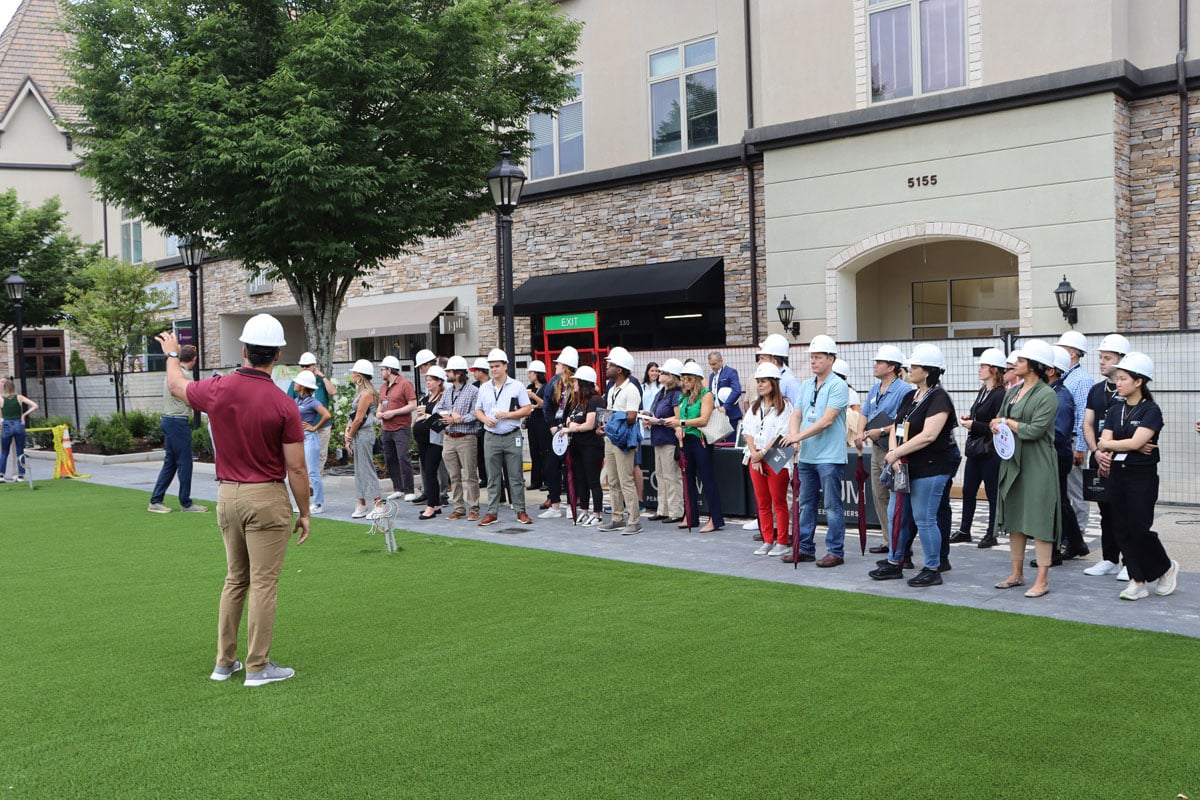
If you’ve been to or near the Forum in the past few months, you’ve probably noticed cranes and construction crews. The anticipation of the first phase of renovation of the 22-year-old retail center has left a lot of Peachtree Corners residents as well as nearby patrons excited to see changes.
The Forum administration invited the media for a hard hat tour on July 17. The event showcased the redevelopment progress ahead of The Plaza’s grand opening on Aug. 8.
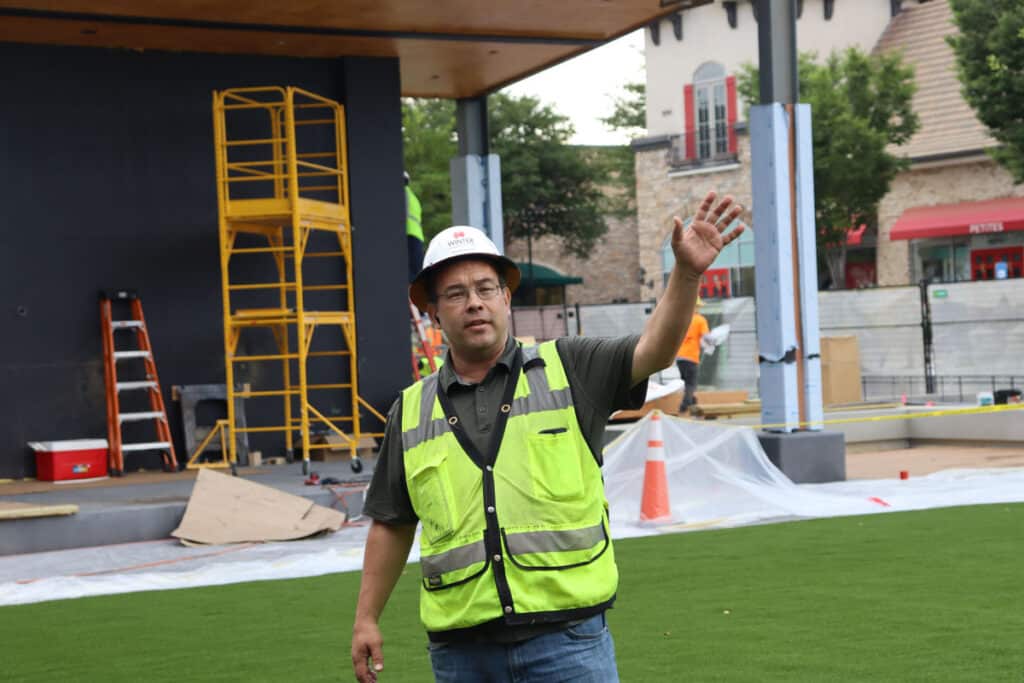
Scrumptious bites incoming
Executives from the development and leasing teams joined on-site management and led attendees around the new central gathering space, guest amenities and Politan Row, the newly created 10,000-square-foot food hall.
Dining concepts from veterans at Sheesh, Twenty-Six Thai and newbie Gekko Kitchen were the first food vendors announced for the space, which is expected to open in January.
“We can’t wait to introduce the Peachtree Corners community to our food hall experience,” said Politan Group CEO Will Donaldson in a news release. “Every detail from the design to the bar program to the cuisine is thoughtfully curated to inspire guests to not only mingle with one another but to connect with our incredible restaurateurs and discover new favorites.”
During the tour, Donaldson explained that eventually there will be seven different global cuisines in the Politan Row food court at the Forum featuring well-known and up-and-coming local talent. Once complete there will be a central bar, a private event venue and a covered outdoor patio.
“One of the things that we’re excited about is this unique design that we’ve come up with, that’s very specific to this area,” he said. “We’ll be open seven days a week for lunch and dinner. Whether you’re with a group for lunch or with your family, it works great for multiple settings.”
Twenty-six Thai owner Niki Pattharakositkul said the restaurant will work with local vendors to source the freshest meats and produce possible.
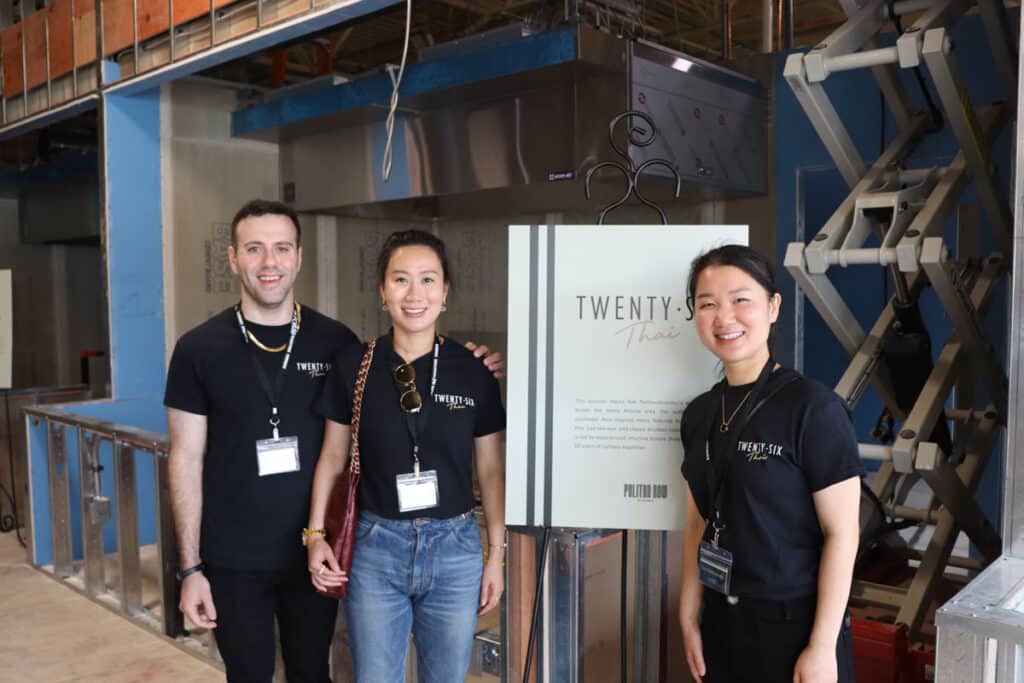
“There are certain types of produce and protein we try to source locally, but sauces and the more exotic produce and herbs, we have to import from Thailand,” she said. “Our brand is trying to move towards doing things locally and sustainably.”
Working with organizations such as Georgia Grown limits the use of large food distribution companies. Since starting Twenty-six Thai in 2016, Pattharakositkul has launched seven locations across metro Atlanta, including at Politan Row’s Ashford Lane and Colony Square.
The eatery describes itself as an “authentic wok-fired Southeast Asia-inspired menu featuring items such as pad Thai, pad see ewe and classic drunken noodles.”
Sheesh, a Mediterranean concept that uses simple, wholesome ingredients prepared with unique spices and blends, is run by corporate executive chef Charlie Sunyapong and director of operations Raquel Stalcup. The two are also members of the group behind full-service restaurants Stäge at Town Center and Pêche at the Forum.
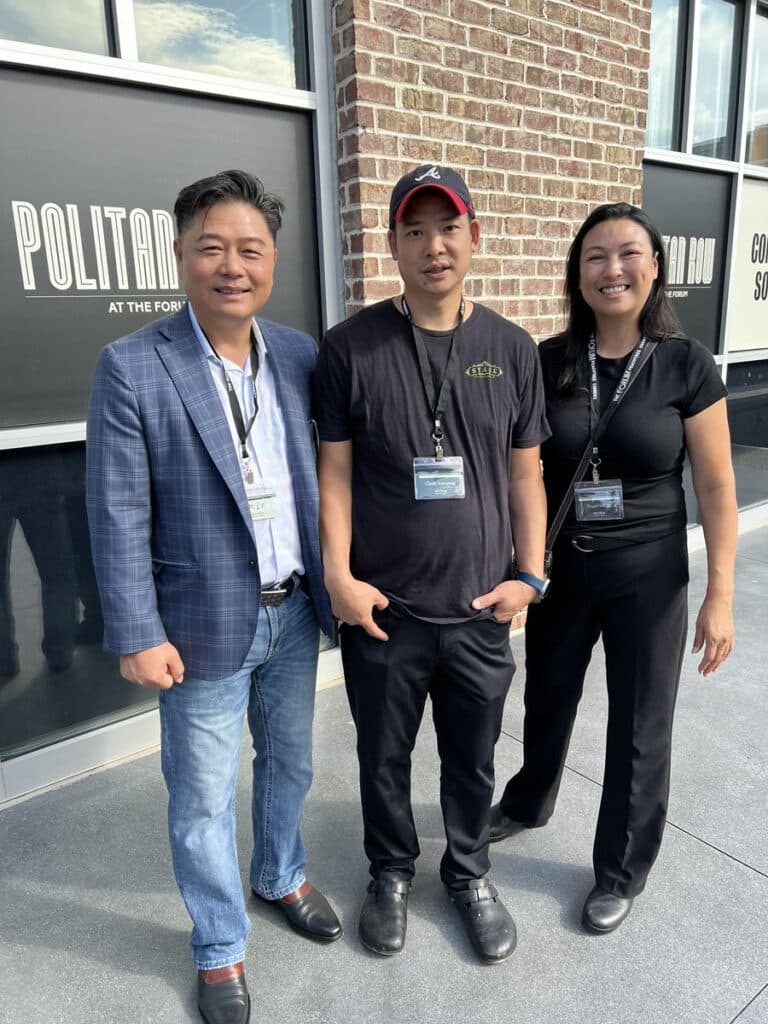
The popularity of those suburban concepts has already taken off. With Sheesh, they’re looking to do something different.
“There are going to be some things that are unique to Sheesh that you’re not going to get at the other places,” said Sunyapong. “You’re not getting a whole restaurant; this is quicker fare.”
Gekko Kitchen, a former food truck transformed into a hibachi and ramen experience, will be serving fresh, fast bowls that are more colorful and lighter than traditional hibachi fare.
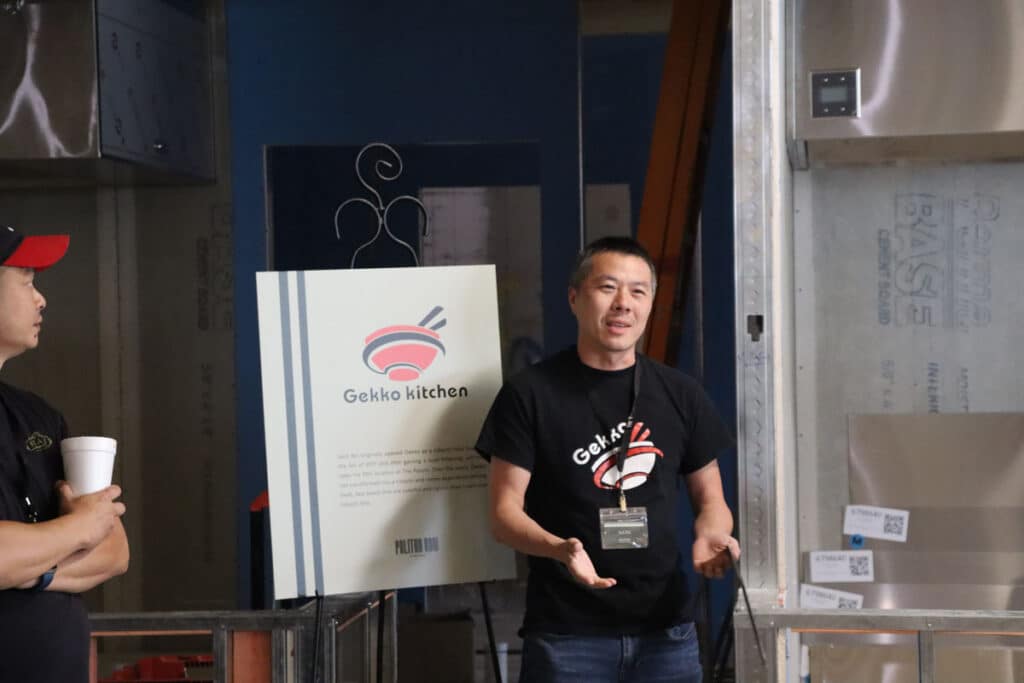
Gathering spots
Development Manager Nick Lombardo explained that NAP is moving away from building big construction projects from scratch like Colony Square in Midtown Atlanta and Avalon in Alpharetta.
“As a company, North American Properties pivoted around 2020 from building big ground-up construction to more redevelopment with already existing properties,” he said. “With the thought of great assets that just need a little more attention Infused into them to create value, we bought the Forum in 2022.”
He said that value-add propositions done at The Forum will create a more walkable center.
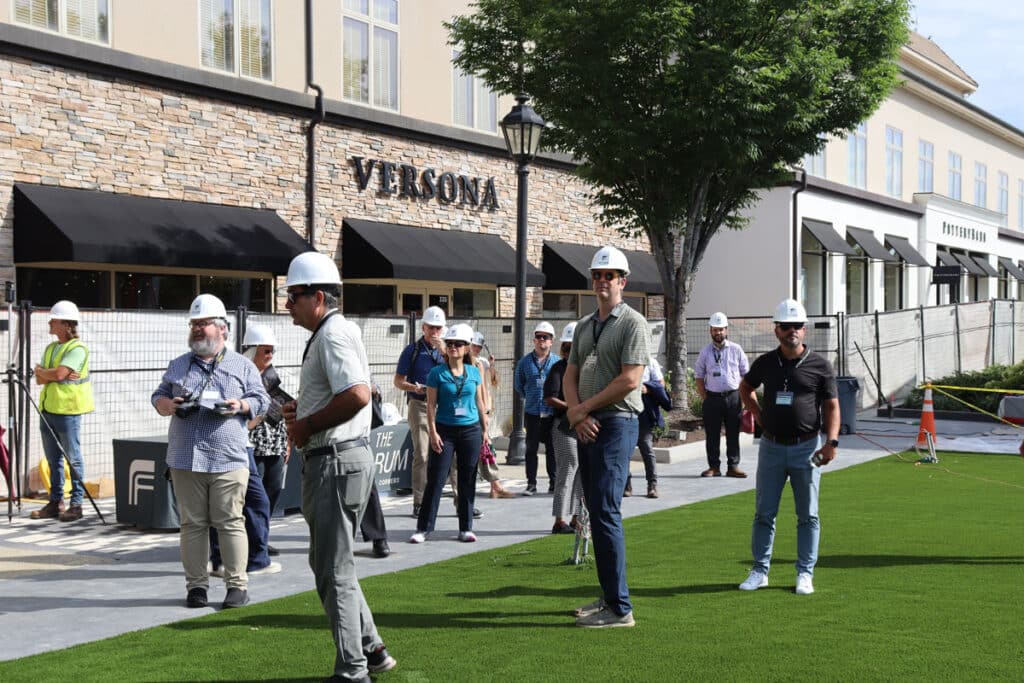
“Trying to compete with the internet on convenience is a very tough task, so the way we differentiate is by experiences,” he said. “We host between 150 to 200 events every year. We have things like concerts, wellness and fitness events and we have child playtime events. Our marketing team does a great job and they’re the differentiator when it comes to what makes our property stand out.”
By the first week of August, a large gathering space will be unveiled in the central area of the property between Pottery Barn and seafood restaurant Pêche. It will have a nine-foot LED screen capable of hosting movie nights and sports viewing. There will also be musical performances featuring local artists.
“We’re not in competition with Town Center,” said Charlotte Hinton, marketing manager at The Forum. “Town Center has gates like a real music festival and we’re more like a ‘chill and enjoy the music’ vibe where you can grab a beer and hang out or maybe kind of walk around.”
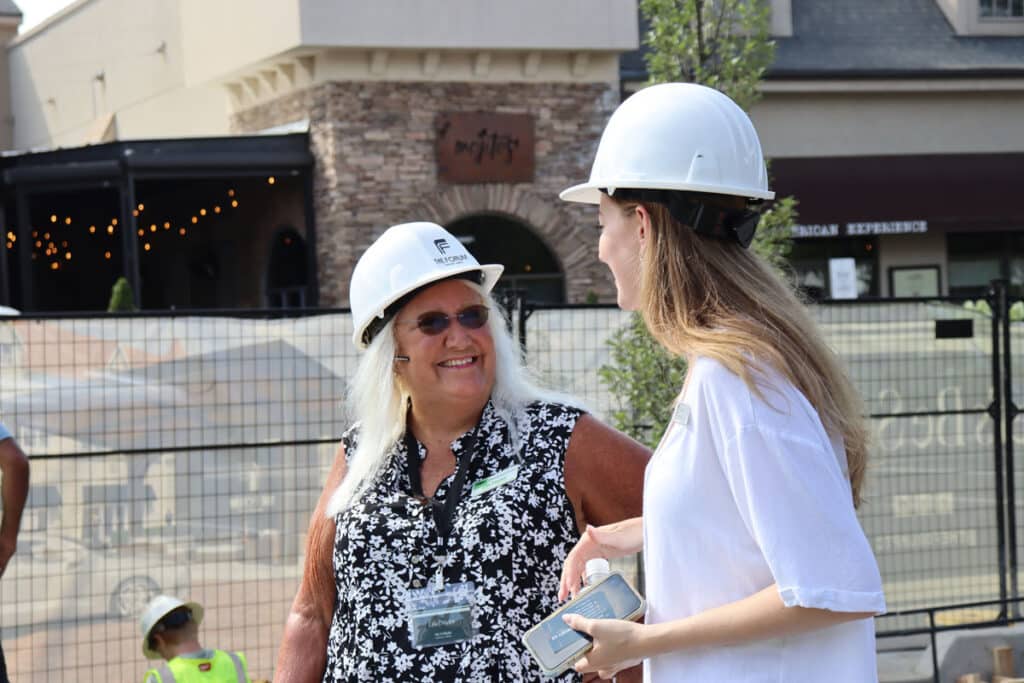
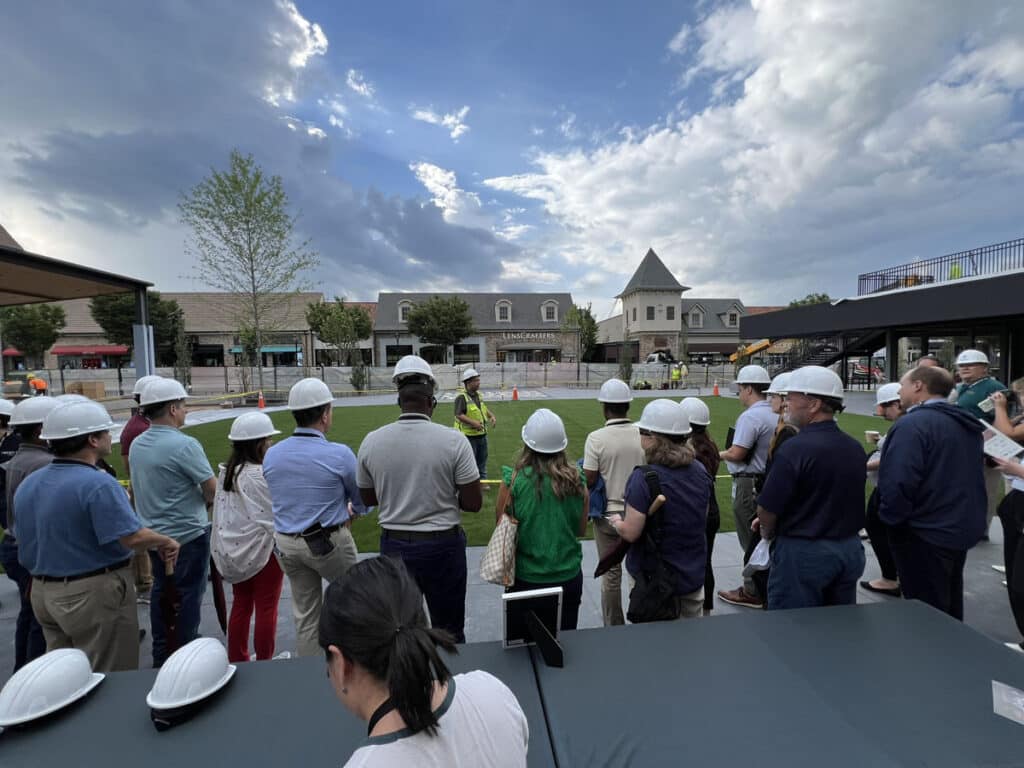
The smaller space and artificial turf are unlike the Town Center space where attendees spread blankets and bring chairs. The Forum will have furniture and seating in the space so folks can just gather and either enjoy time with family or partake in events.
The Forum will also offer valet parking on a limited schedule at that end of the property.
More improvements
Although the construction equipment will have moved out, the jewel box building will house a yet-to-be-named restaurant that will open early next year.
“We’re pretty much done with what we’re doing as far as landlord work,” said Lombardo. “We ask our tenants to bring their brand and their design and their material pallet and put that on the building to express their brand identity. They know their brand better than we do. They know how to best design their building and how it functions and works.”
It’s the same process with retail stores, he added.

“We always ask all of our new tenants to come in here when they’re building their storefront,” he said. “They’re not just selling their clothes; they’re selling a lifestyle in the brand so we ask them to push their brand out to the street.”
Even with the new spaces, there will be no shortage of parking, Lombardo added. “There’s plenty of parking behind these buildings,” he said pointing toward Pêche. “What we’ve done is enhance the connectivity to those areas. We’ve redone this breezeway and we’re adding lighting and connecting the parking lot to the main boulevard here. The goal is to replace cars with people and activity and bring a sense of community to the property.”
Related
Business
Taste of Peachtree Corners: PCBA Showcases Local Restaurants
Published
1 week agoon
July 17, 2024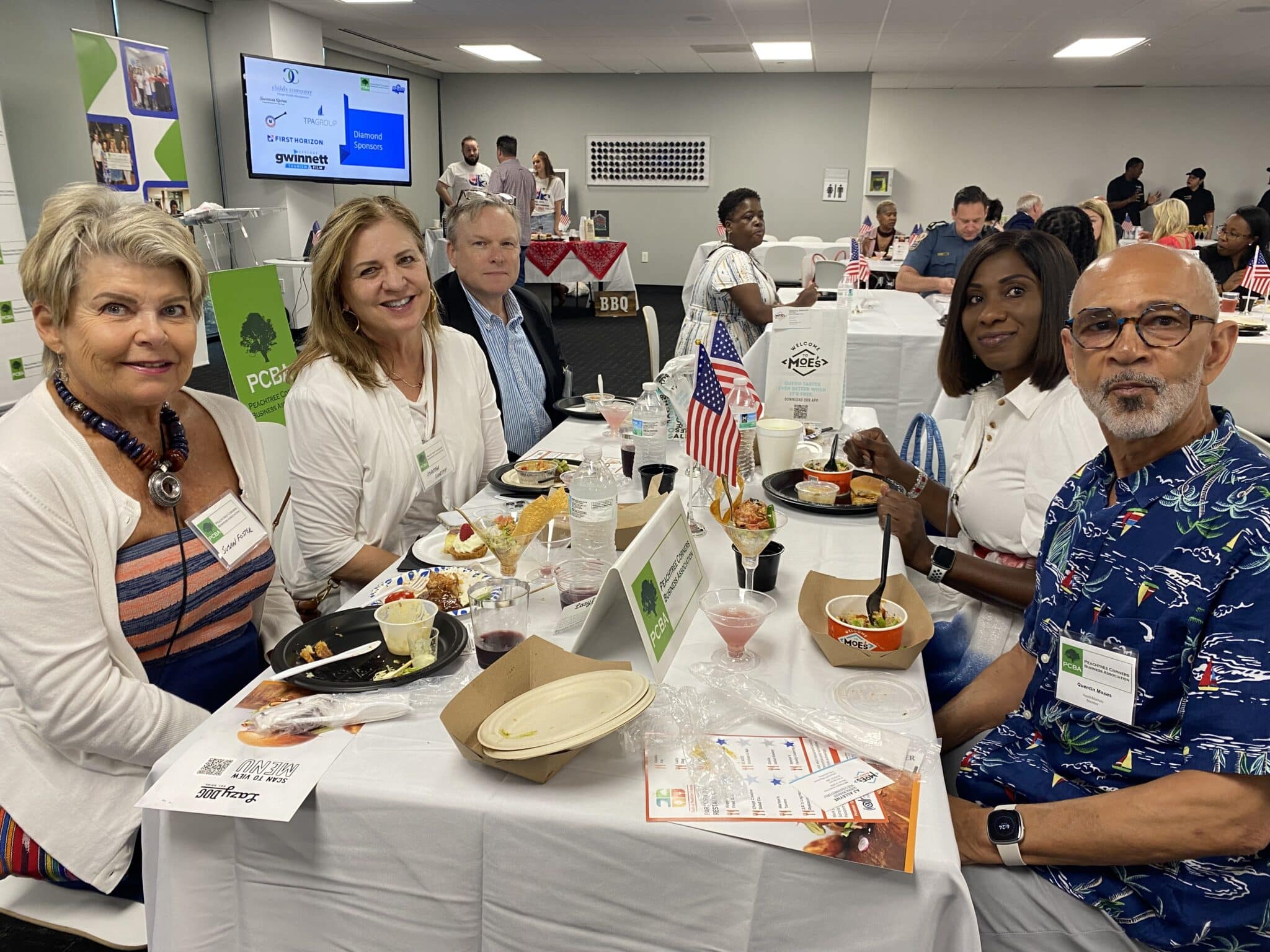
The Taste of Peachtree Corners has been in the works for years, but the COVID-19 pandemic put many key events on hold for the Peachtree Corners Business Association (PCBA).
But luckily this year, the dedicated staff of volunteers successfully executed a memorable event and introduced a lot of local business owners to their neighboring restaurants and caterers.
As I walked up to the Community Chest Room at Peachtree Corners City Hall on June 27, there was a line outside the door. I later found out that over 100 people had registered to attend the event. I got checked in quickly and was faced with a “passport” of 10 Peachtree Corners restaurants serving everything from high-end bakery items to good old-fashioned barbecue, and modern twists on seafood and American cuisines.
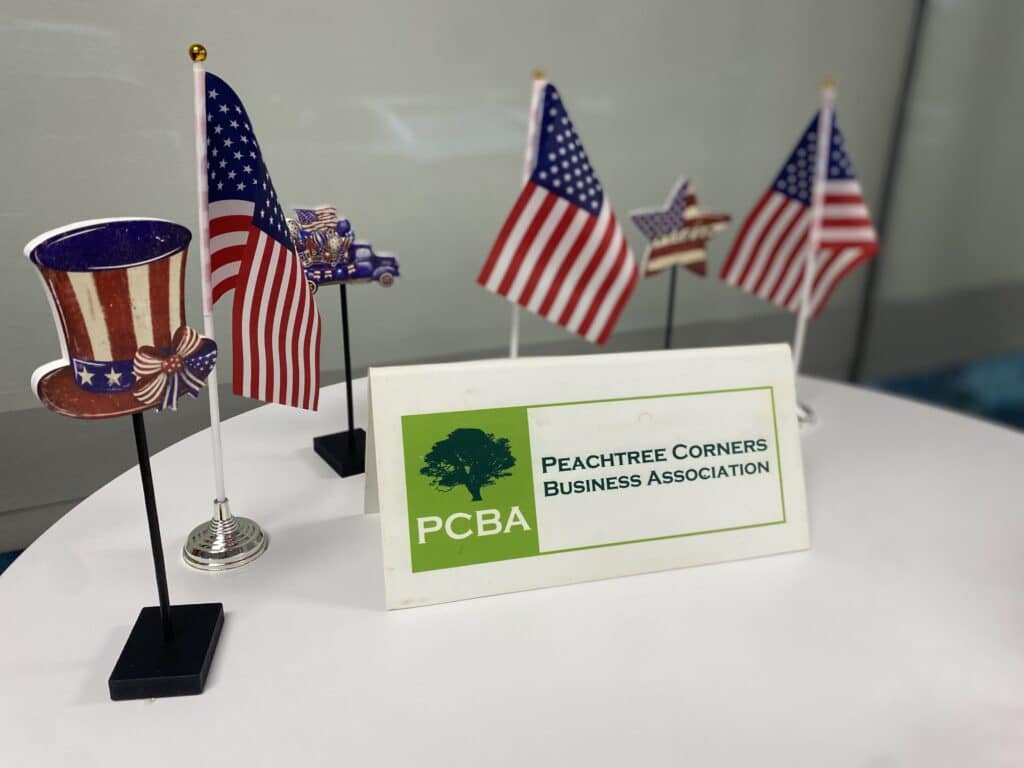
Let’s talk about the food
The idea was to visit all 10 restaurants and collect stars while trying samples and small plates. My first stop was Firebirds Wood Fired Grill, and they had my favorite – homemade chips and queso. The queso was smoky and mildly spicy with a great depth of flavor. What a great start. Next up was Chopt. Creative Salad Co. I had never heard of this restaurant before, but they blew me away with a perfect amuse-bouche of cherry tomato, pesto, mozzarella, and olive oil. These guys understand simple and fresh Mediterranean flavors.
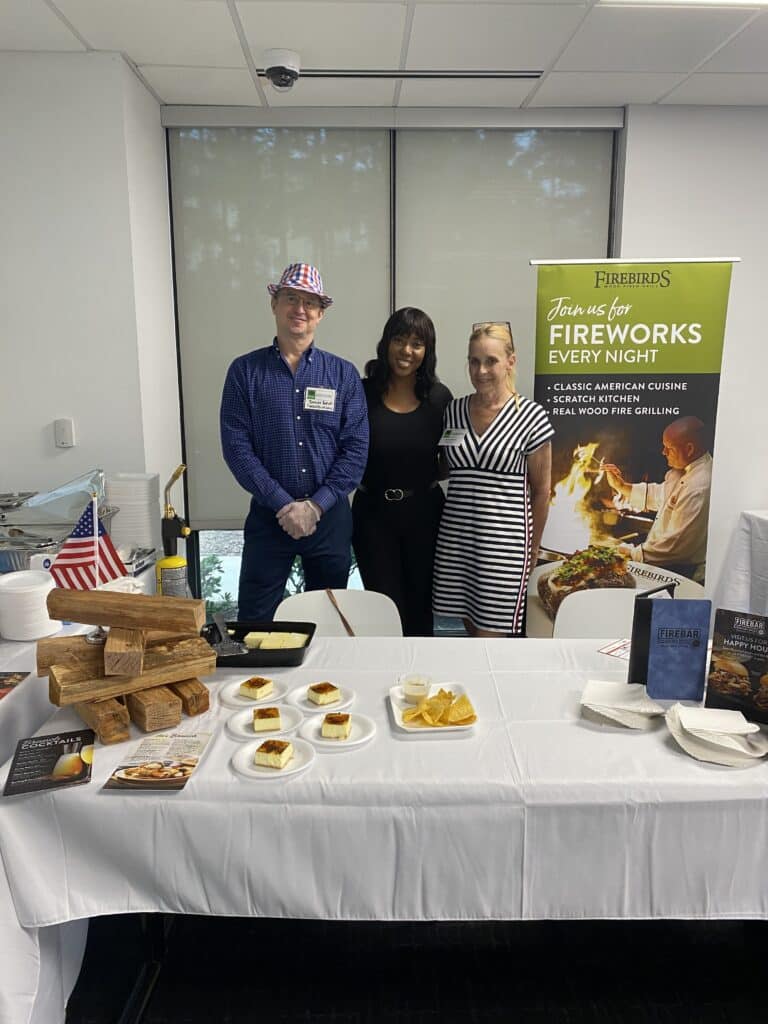
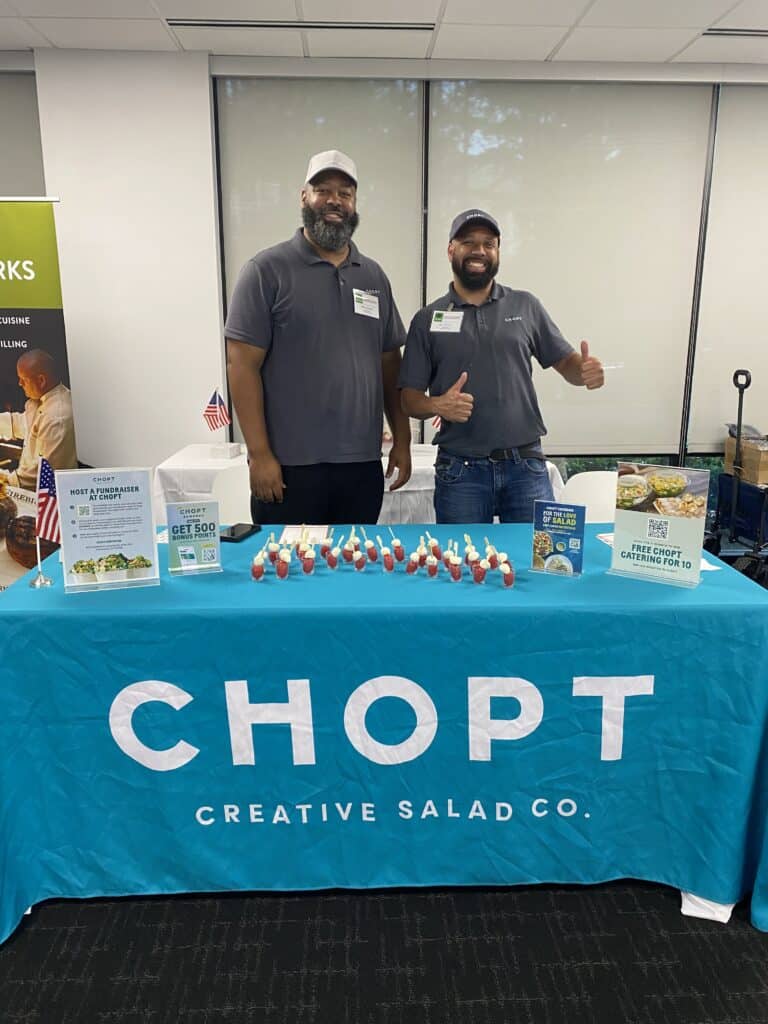
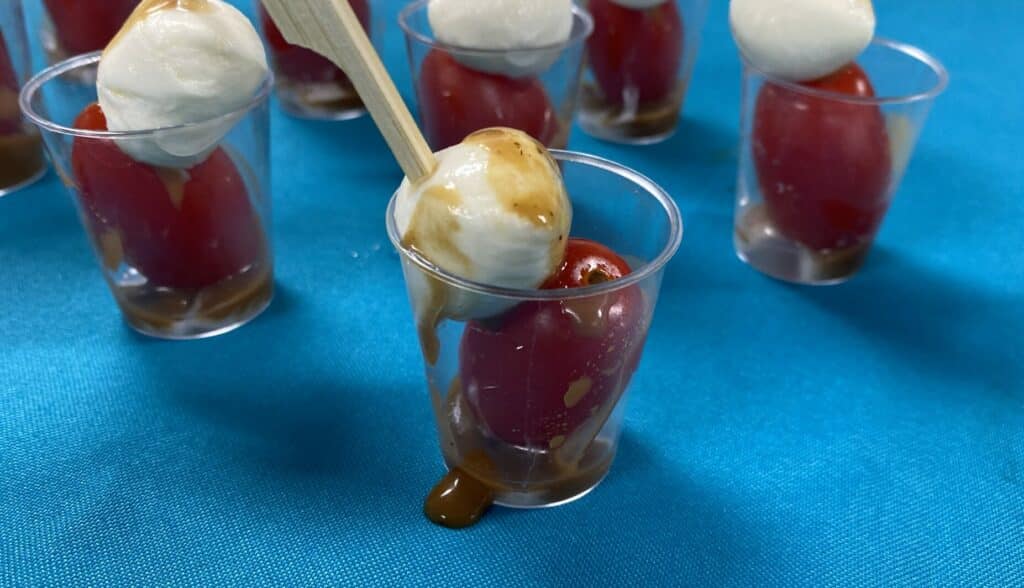
The folks from Marlow’s Tavern were also on-site serving shrimp and grits with jalapeno, spinach and tomato beurre blanc. This is definitely the style of elevated food I’ve come to expect from Marlow’s. And as a nice touch, they prepared a refreshing blueberry cocktail.
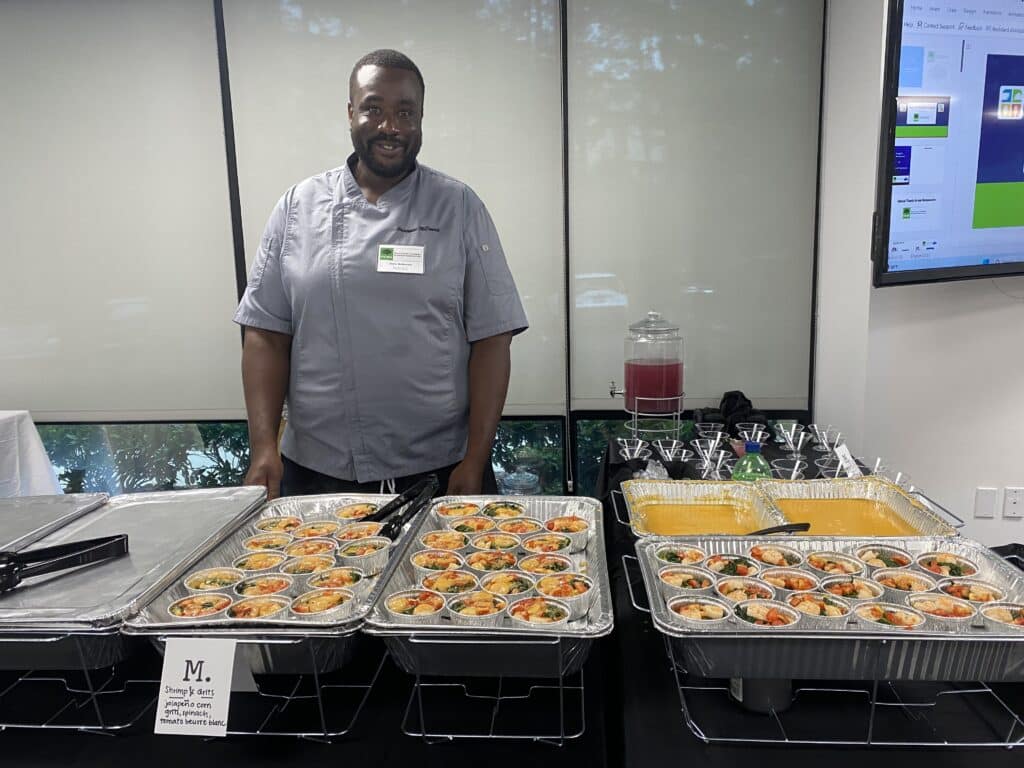
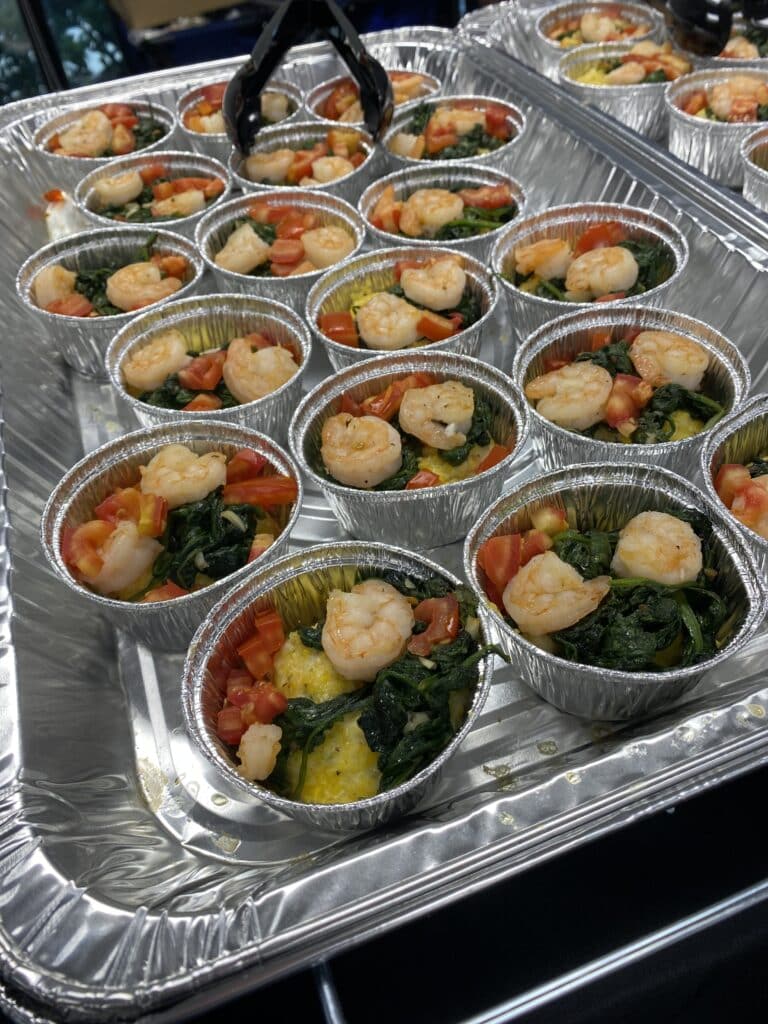
Another familiar face was set up on the other side of the room. J.R.’s Log House Restaurant served southern favorites like pulled pork sliders, baked beans and mac n’ cheese. I couldn’t pass this one up. The pulled pork was tender, tangy and saucy. Exactly what I want from a barbecue. Lazy Dog’s table really impressed me with its presentation. The tuna cup with rice, avocado and chili with chips on the side, was a real stunner.
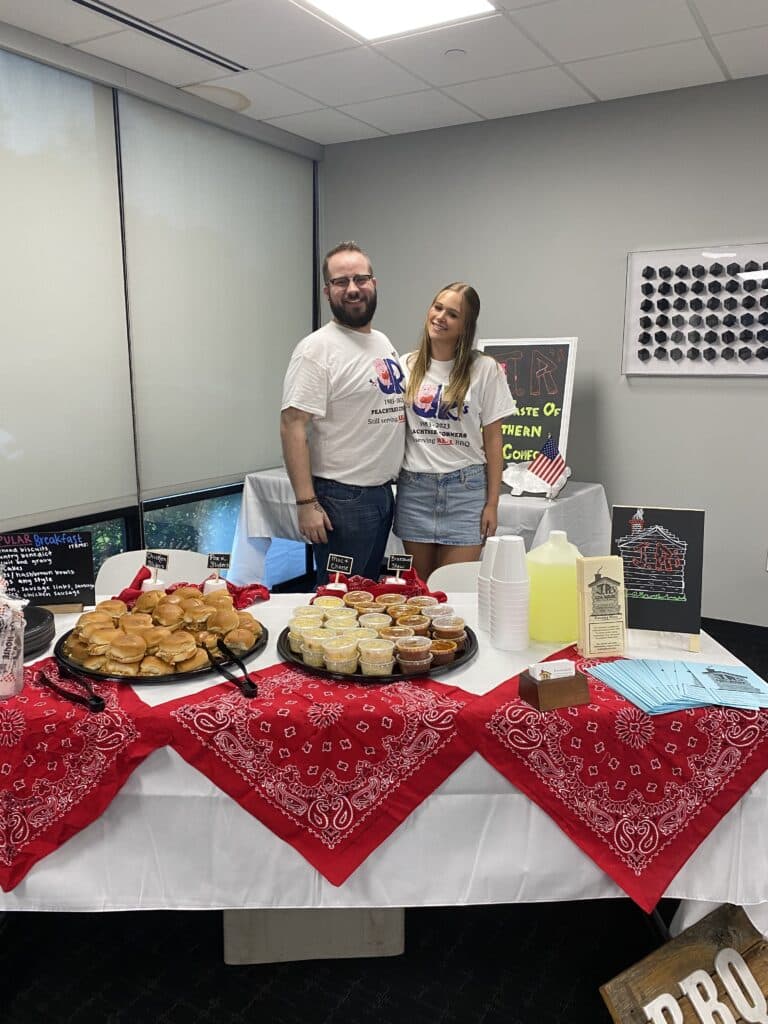
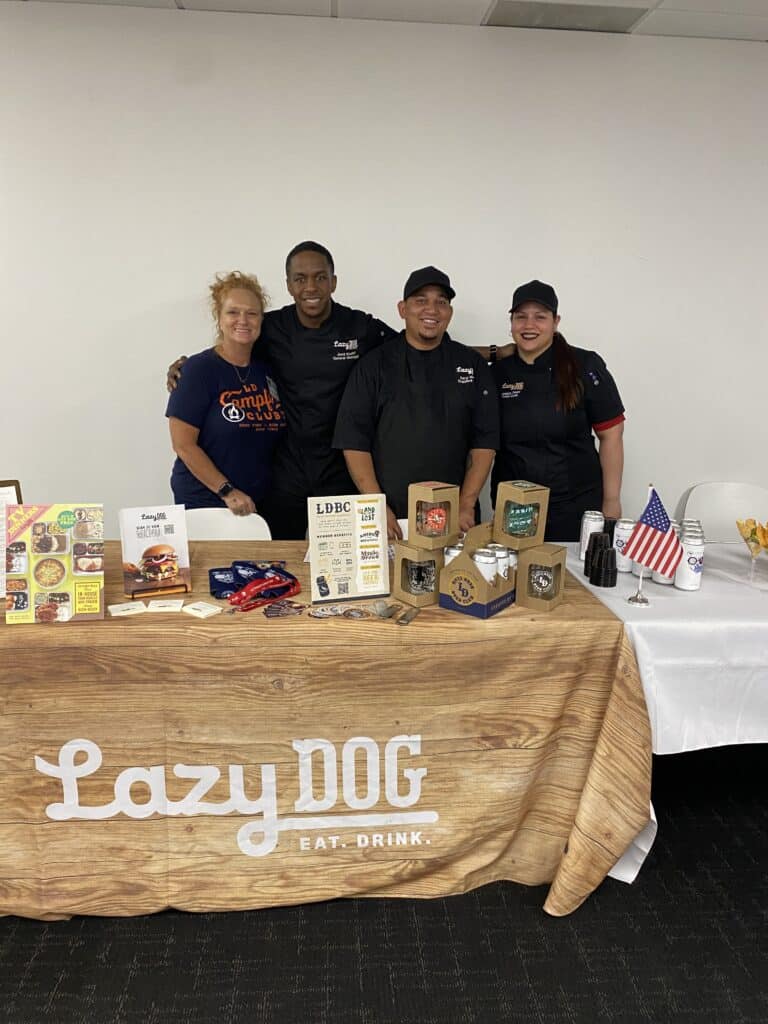
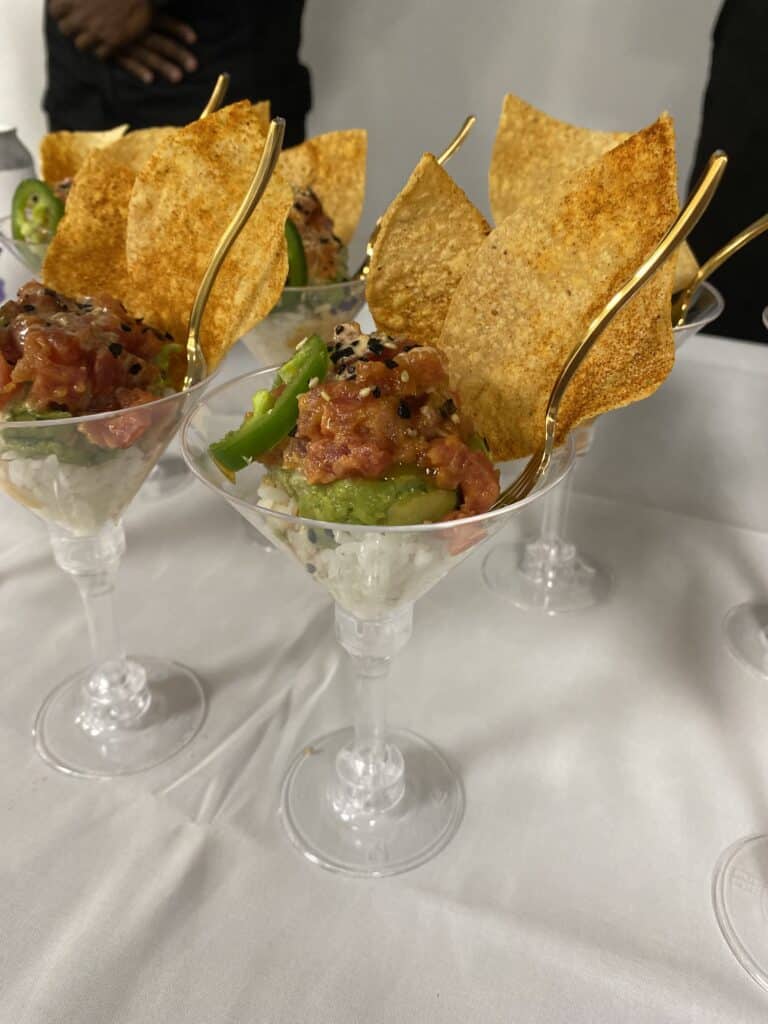
Moe’s Southwest Grill was also on-site handing out tasty tequila lime chicken with rice, avocado, and black beans. This super hearty and comforting entrée was followed by a seafood course from PECHE Modern Coastal. Crab cakes with a croissant pinwheel, roasted garlic and lemon aioli and arugula were on the menu and the flavor combinations were simply fantastic.
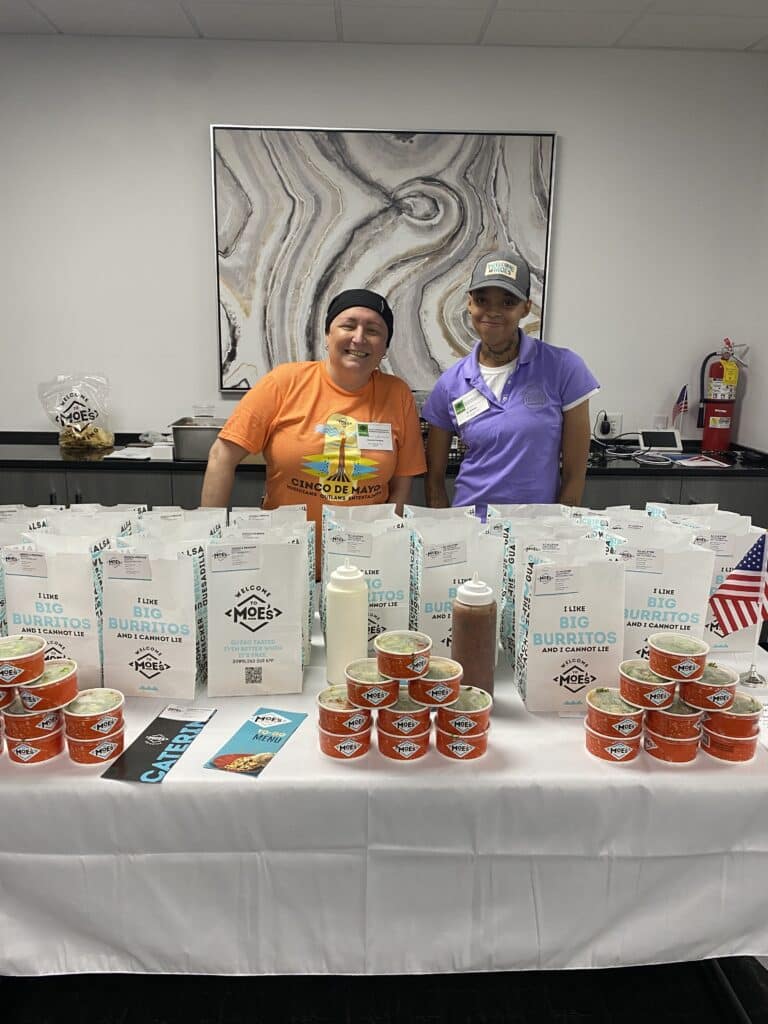
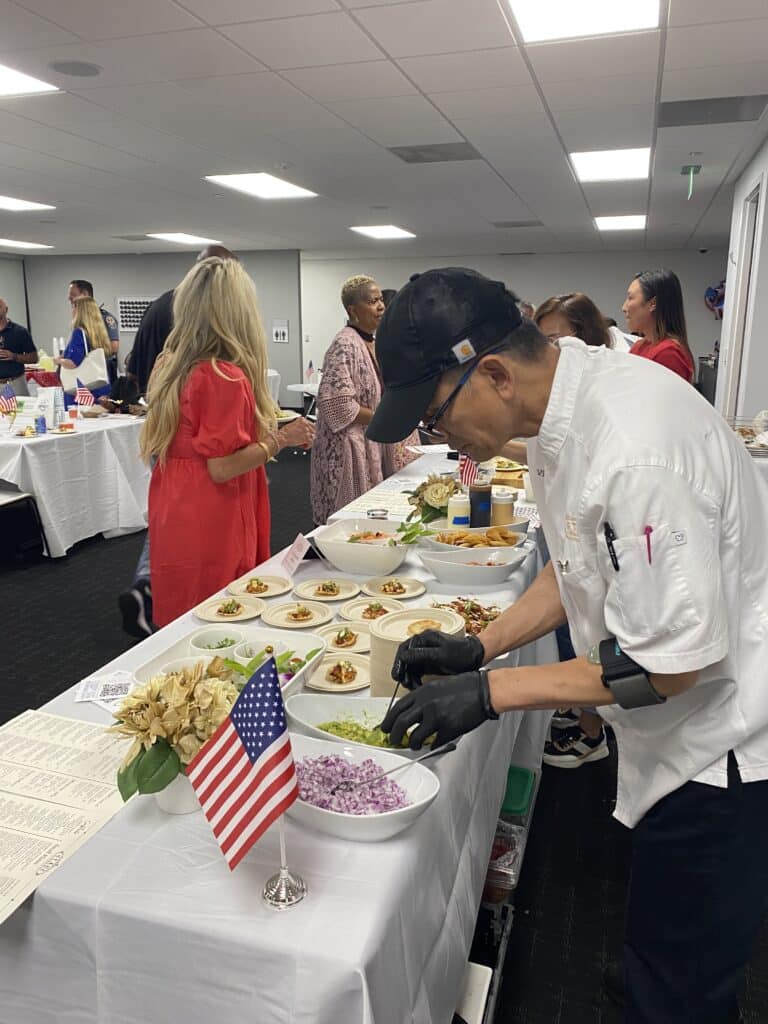
PECHE’s sister restaurant STAGE Kitchen & Bar was next door offering a tuna and salmon tostada with avocado, eel sauce, spicy mayo, and cilantro. This was easily one of my favorite bites of the night. The tostada was crunchy and light with clean and bright flavors. No kidding, I could probably eat this every day for lunch.
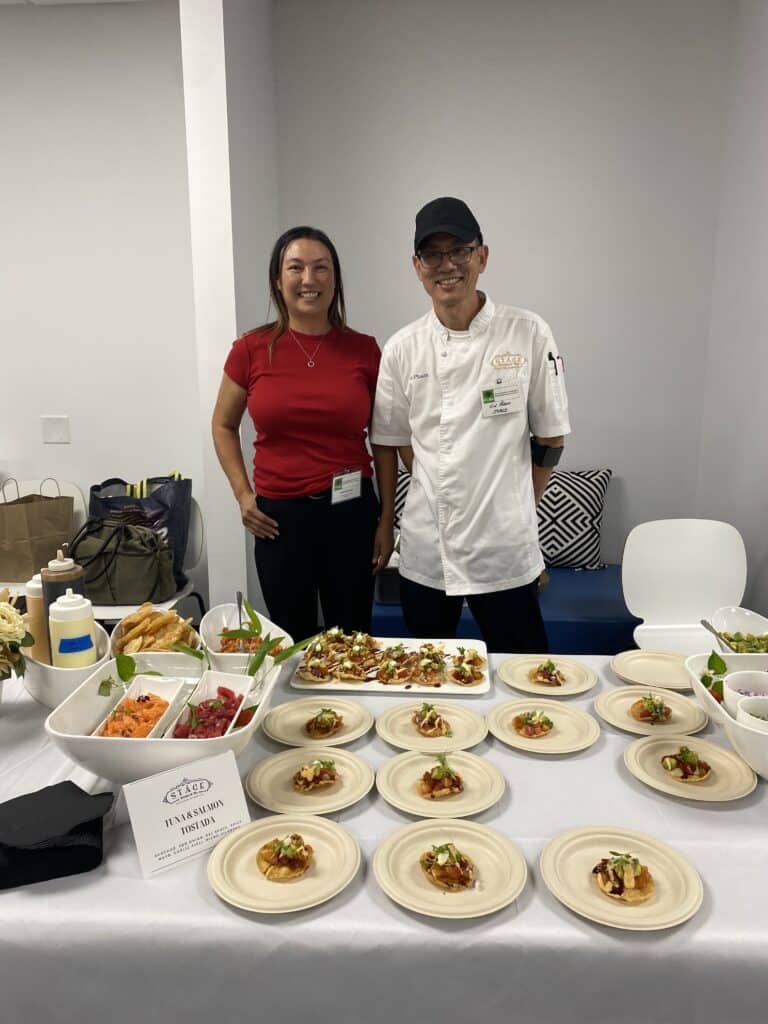
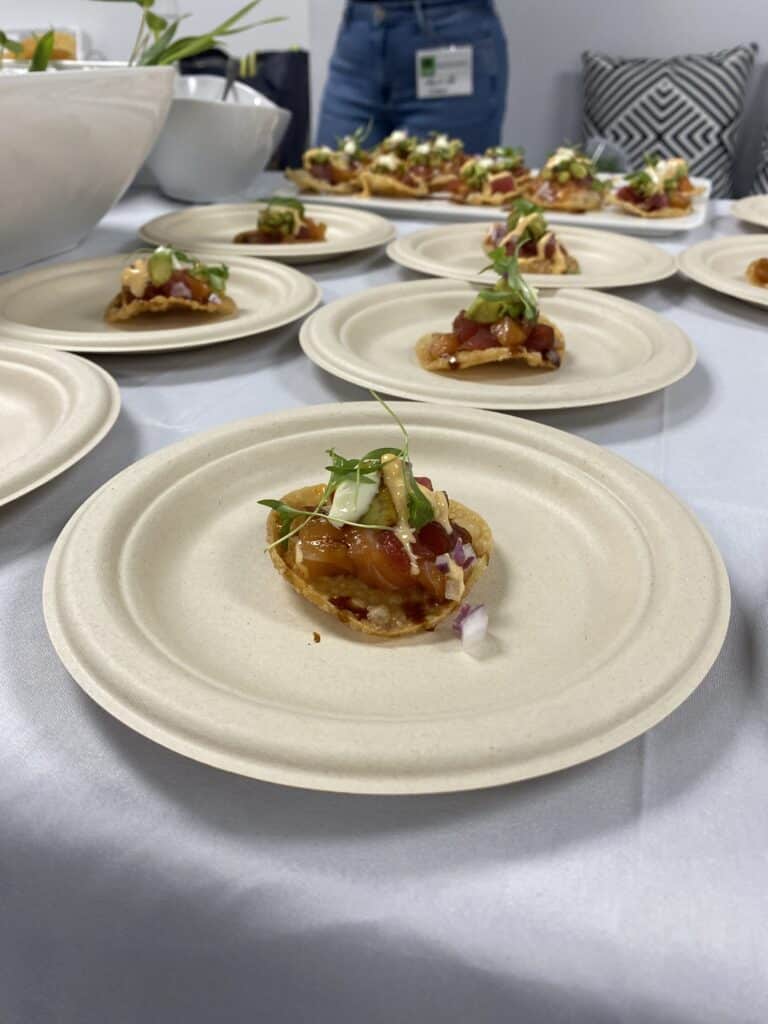
I moved on the Smoke’s Family Catering and owner Phillip Smoke had whipped up enough barbecue to feed an army. I had the pleasure of trying the smoked chicken with potato salad and it was the perfect pairing. Last but not least: dessert. I capped off the evening with a beautiful chocolate ganache-filled croissant with perfect lamination and flaky texture.
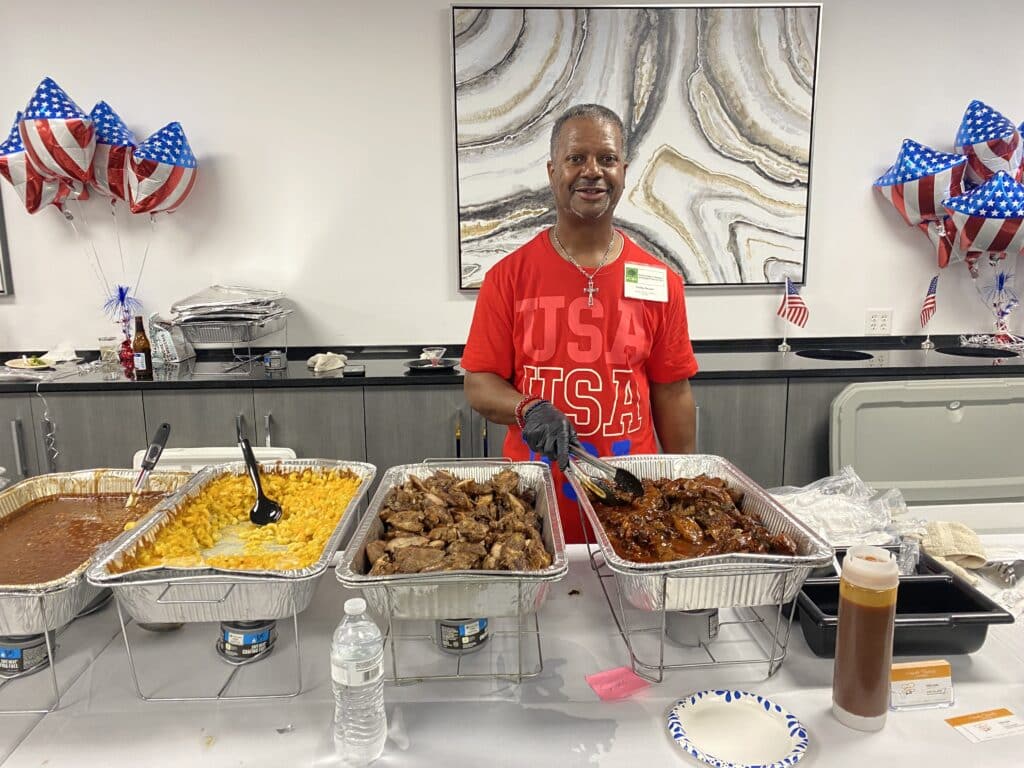
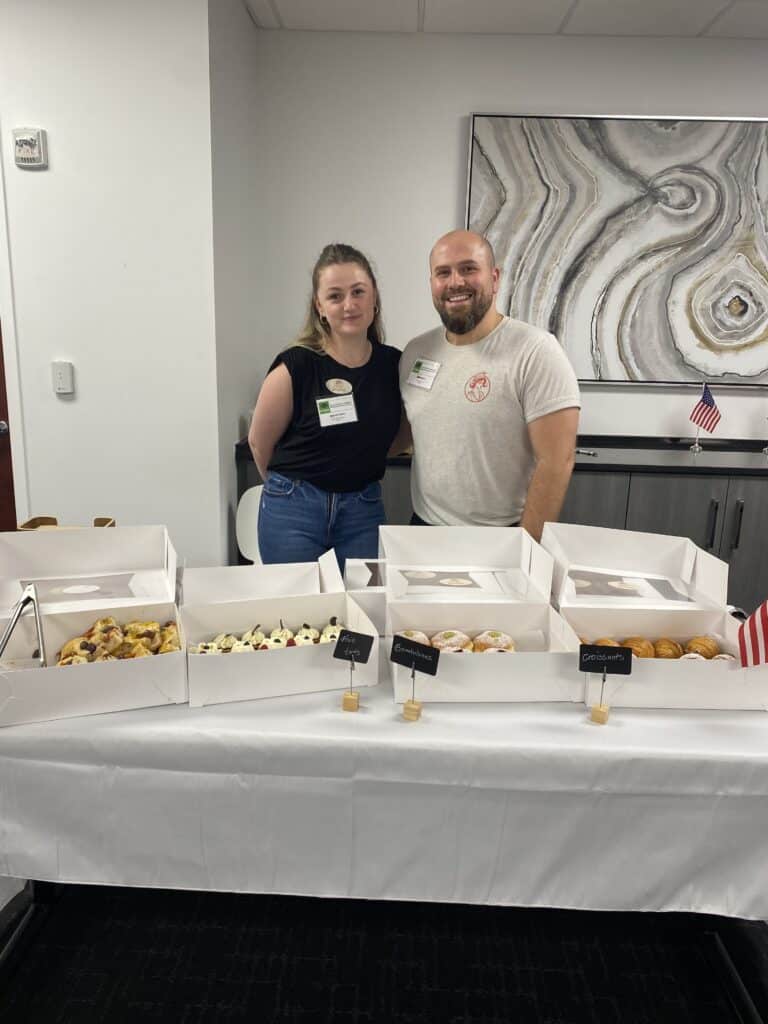
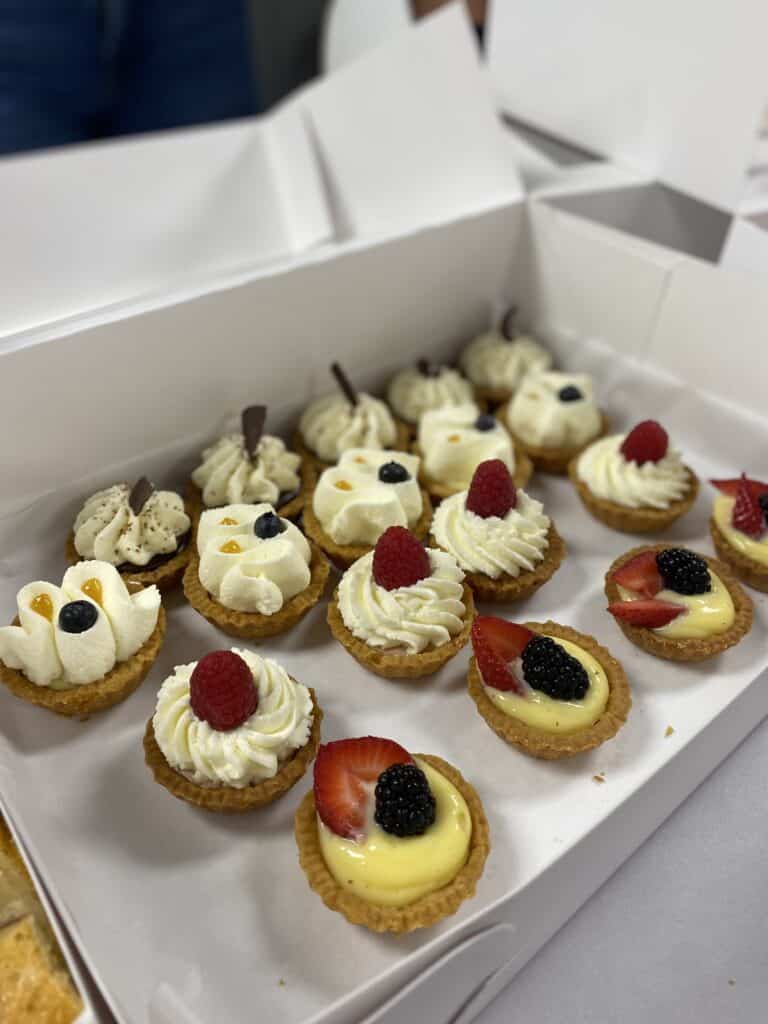
The inspiration behind the event
With a (very) full stomach, I caught up with PCBA President Lisa Proctor to talk about the event.
“We knew that COVID was really hard on a lot of our restaurants to get people back in,” said Proctor. “We wanted to do it in June because we wanted to celebrate our military. Everybody remembers them maybe on Memorial Day or different things, but June is the 80th anniversary of D-Day.”
“The military is always close to our heart,” she added. “We’re also very proud of our restaurants. They all have gone above and beyond.”
Tonight, the PCBA was honoring the Armed Forces and its brave veterans while bestowing two donation checks to very worthy causes.
The first check for $500 went to Folds of Honor. Since 2007, Folds of Honor has provided life-changing scholarships to the spouses and children of America’s fallen or disabled military. And now, their mission expands to the families of America’s first responders.
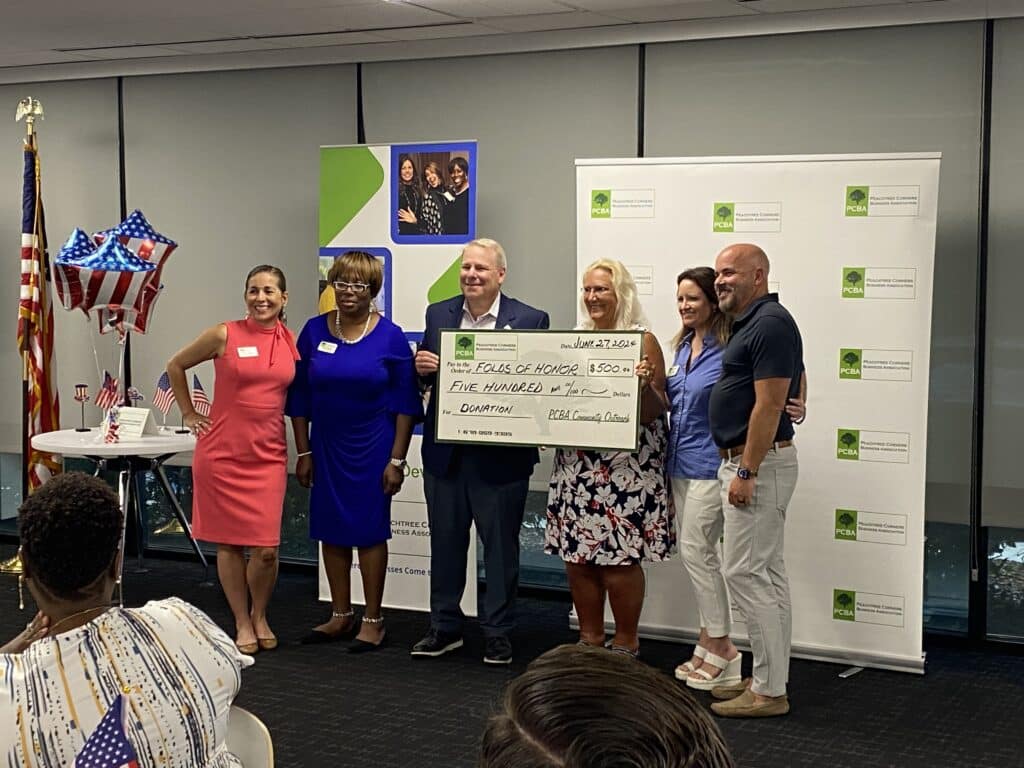
The second check for $500 was given to Light Up the Corners, a 501(c)(3) volunteer organization with an annual glowing, flashing, blinking, shining, nighttime running party and fundraiser in one. All proceeds from the event go to benefit less fortunate children and families in the Peachtree Corners community who are struggling by giving them the chance to participate in life-enhancing programs and activities at the Fowler YMCA.

Over the past 12 years, the PCBA has awarded 19 scholarships and donated more than $156,000+ back to the Peachtree Corners community.
Related
Business
Local Resident Opens AtWork Location in Peachtree Corners
Published
2 weeks agoon
July 10, 2024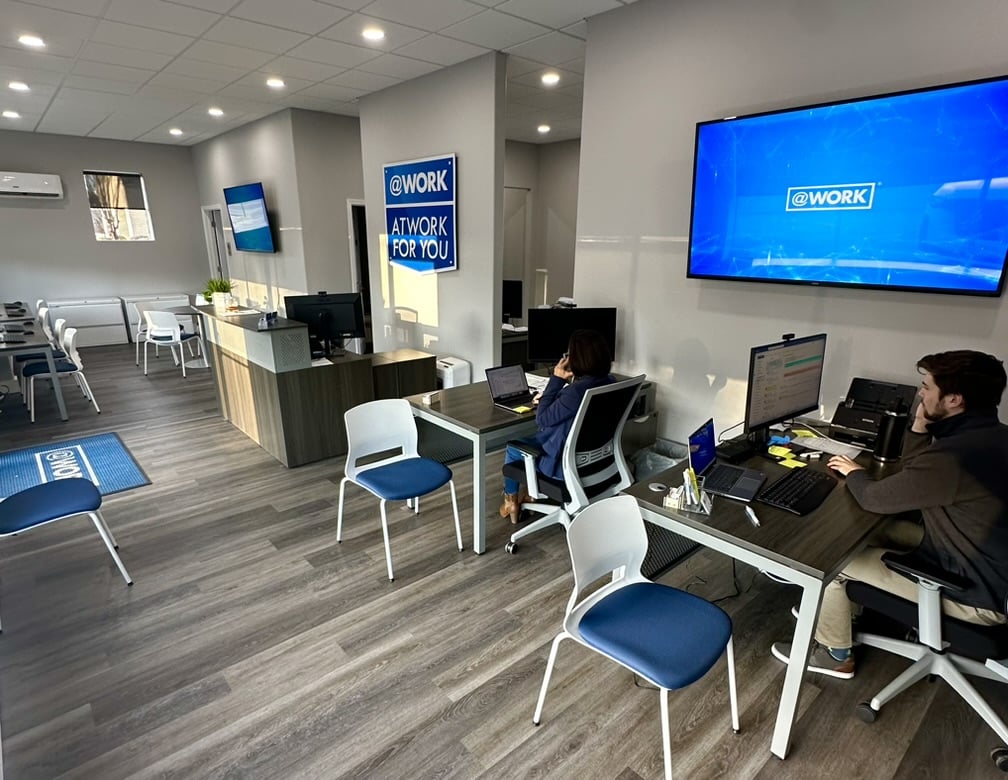
AtWork, one of nation’s leading staffing franchises, has opened its third Metro Atlanta location in Peachtree Corners, Georgia at 6185 Buford Highway, Suite E-100.
AtWork Peachtree Corners is locally-owned by Kamal Bhatia, an immigrant from India with decades of experience in hospitality and as the Senior Vice President of Operations of Atlanta-based Action Bartending School.
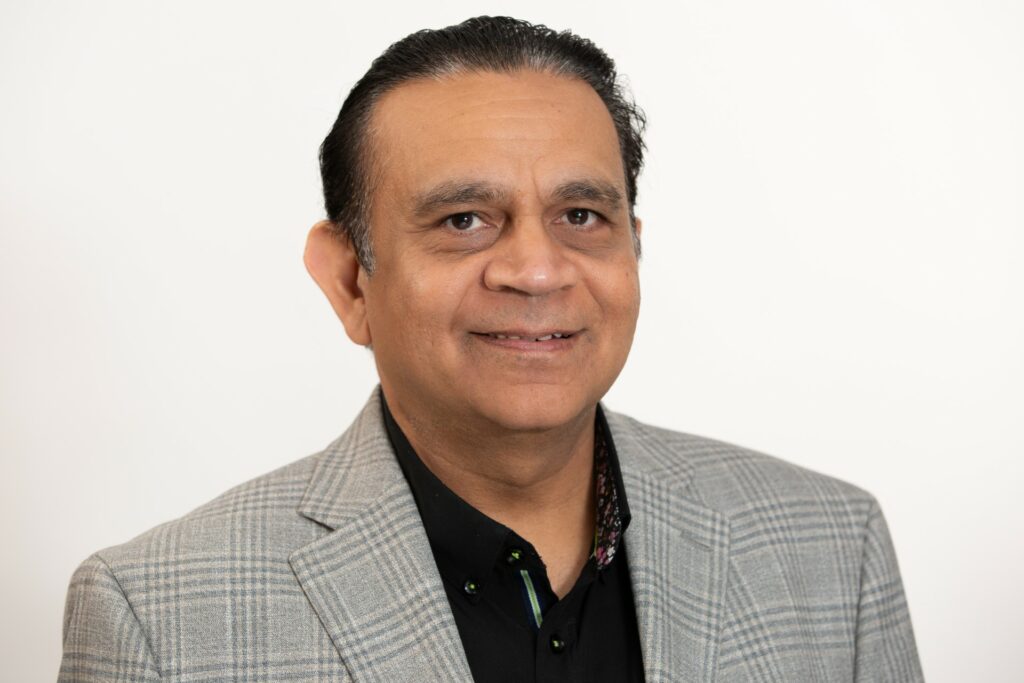
“There is an incredible need for AtWork’s services in Peachtree Corners,” said Bhatia. “Since migrating here in 1996, I’ve witnessed Atlanta evolve and sprout new communities north of the city, including my own. Peachtree Corners has become a hub for thriving businesses, and my goal with this location is to be a key resource between companies and job seekers to support the continued growth of our local economy.”
Bhatia’s son and daughter will assist him in the business.
“This is an opportunity to create a legacy company to ensure our community is supported for generations to come,” he said.
For more than three decades, AtWork’s mission has been to connect people with jobs and jobs with people. With more than 100 locations nationwide, AtWork puts nearly 40,000 individuals to work each year in administrative, light-industrial, accounting and finance, hospitality, IT and management-level positions at some of the nation’s largest and most recognizable companies.
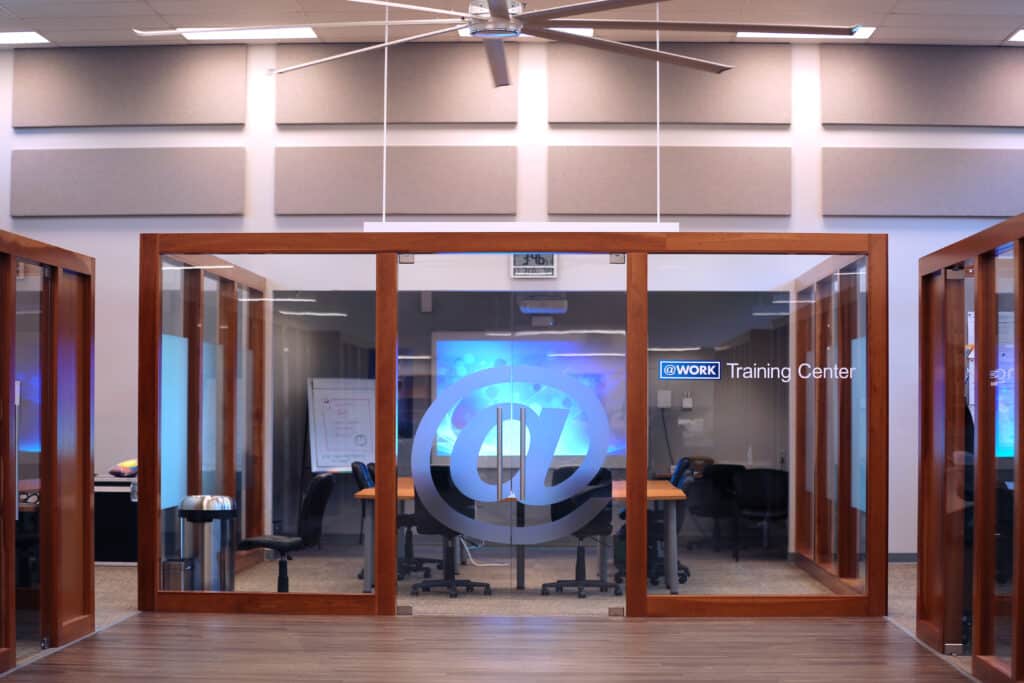
“We’re proud to open our doors in Peachtree Corners and provide a common place for both job seekers and growing businesses to turn for staffing solutions,” said Jason Leverant, President and COO of AtWork.
“AtWork will serve as a key resource to help employees thrive, businesses prosper and communities flourish. Kamal is the perfect partner to champion our mission and be a servant leader in her local community,” he added.
Related
Read the Digital Edition
Subscribe
Keep Up With Peachtree Corners News
Join our mailing list to receive the latest news and updates from our team.
You have Successfully Subscribed!

What’s going on at Jones Bridge Park and the Challenges of Urban Development

Taste of Peachtree Corners: PCBA Showcases Local Restaurants

The Forum Gives Sneak Peek of New Eateries and Community Spaces

Southwest Gwinnett Mayors Share Visions for the Future

8 Events Happening In and Around Peachtree Corners This August

Peachtree Corners Shines Bright with Light Up the Corners Glow Race this August

Peachtree Corners Shines Bright with Light Up the Corners Glow Race this August

The Forum Gives Sneak Peek of New Eateries and Community Spaces

8 Events Happening In and Around Peachtree Corners This August

Southwest Gwinnett Mayors Share Visions for the Future

Taste of Peachtree Corners: PCBA Showcases Local Restaurants

What’s going on at Jones Bridge Park and the Challenges of Urban Development

Local Resident Opens AtWork Location in Peachtree Corners

CHRIS 180 Expands its Services into Gwinnett County [Podcast]

Light up the Corners [Video]

Capitalist Sage: Business Leadership in Your Community [Podcast]

Cliff Bramble: A Culinary Adventure through Italy

Top 10 Brunch Places in Gwinnett County

A Hunger for Hospitality

THE CORNERS EPISODE 3 – BLAXICAN PART 1

Top 10 Indoor Things To Do This Winter

The ED Hour: What it takes to Remove Barriers from Education
Peachtree Corners Life
Topics and Categories
Trending
-
Business1 week ago
Taste of Peachtree Corners: PCBA Showcases Local Restaurants
-
Business2 days ago
The Forum Gives Sneak Peek of New Eateries and Community Spaces
-
City Government4 days ago
Southwest Gwinnett Mayors Share Visions for the Future
-
Around Atlanta4 days ago
8 Events Happening In and Around Peachtree Corners This August







